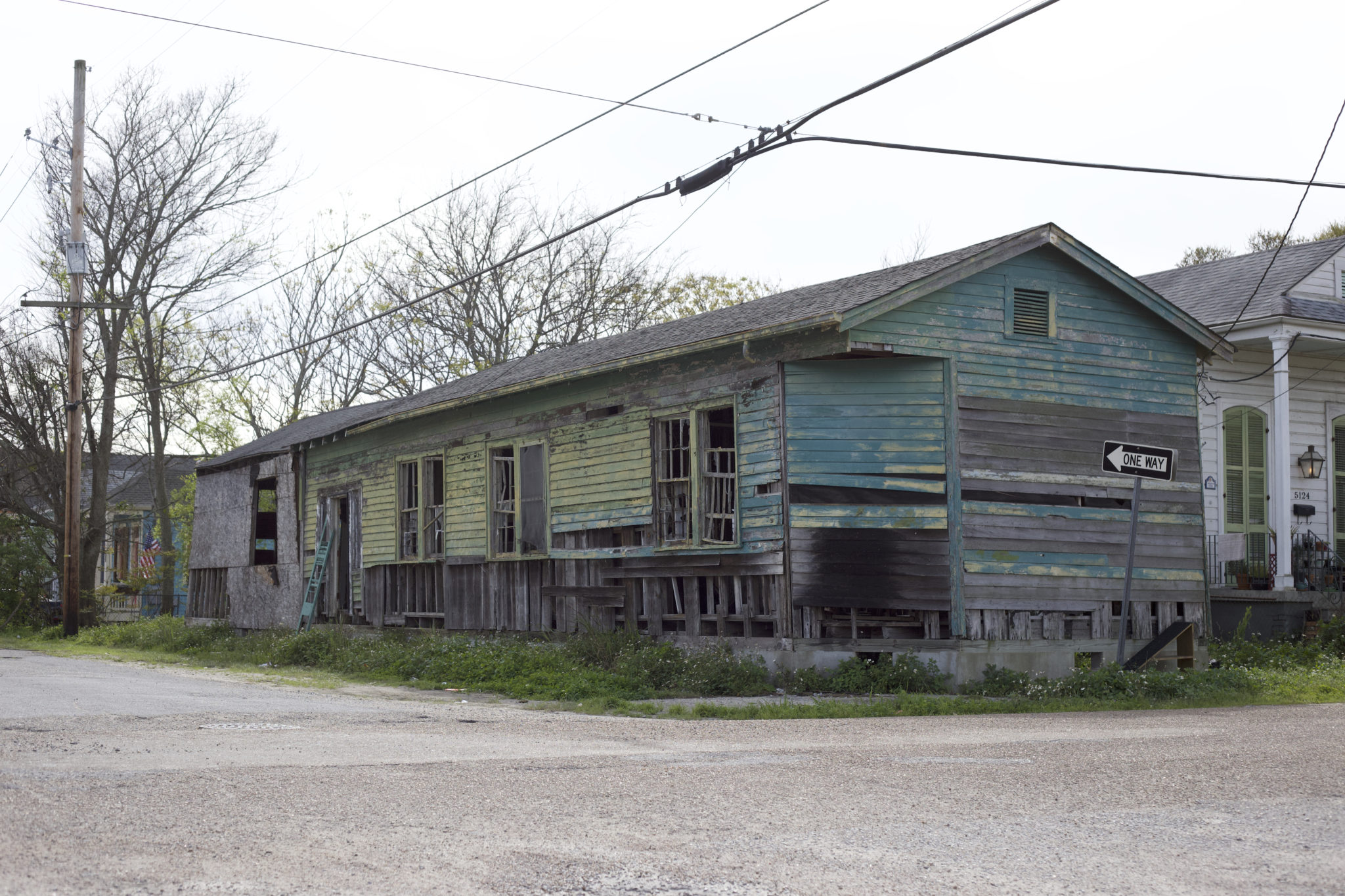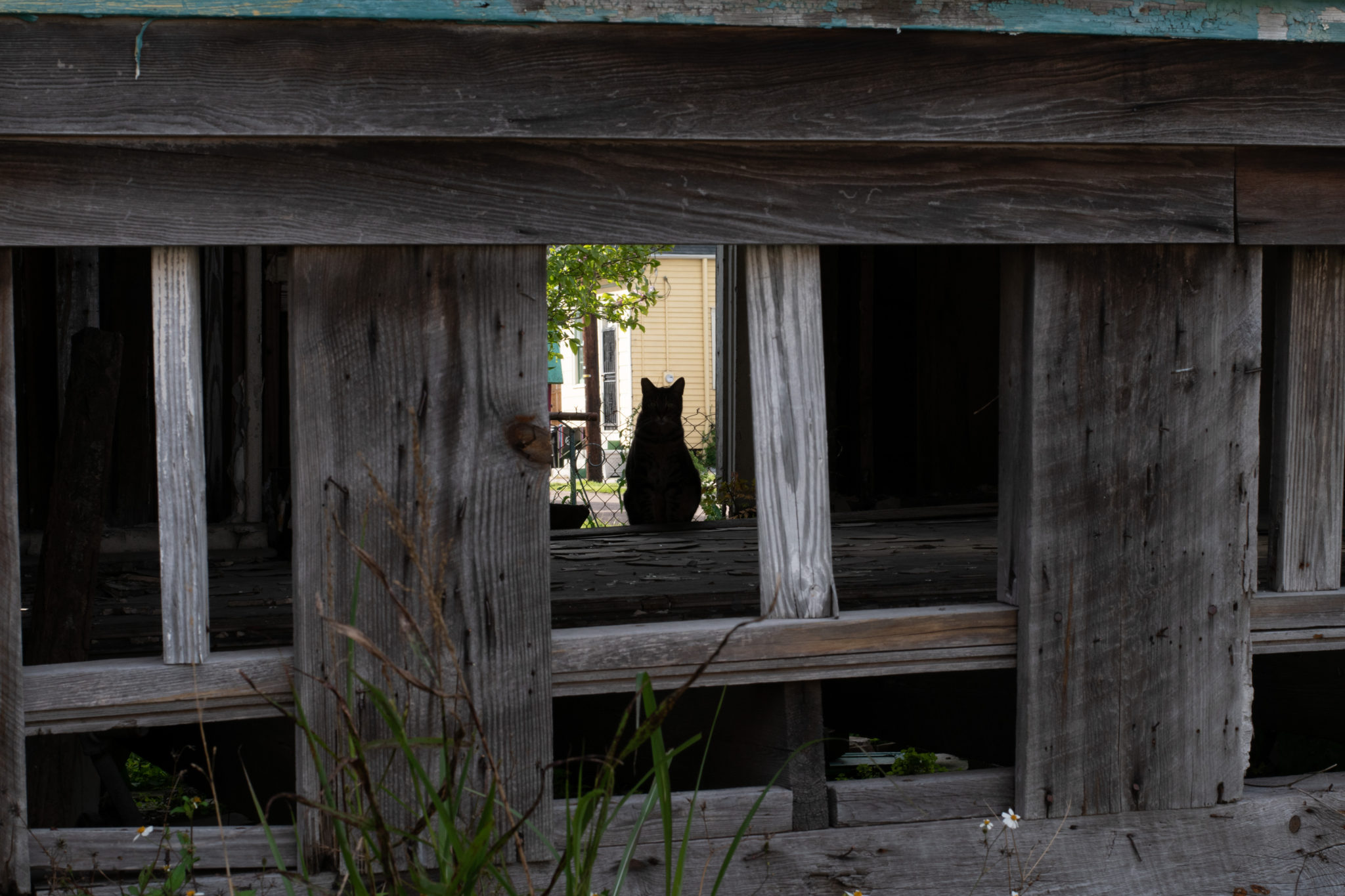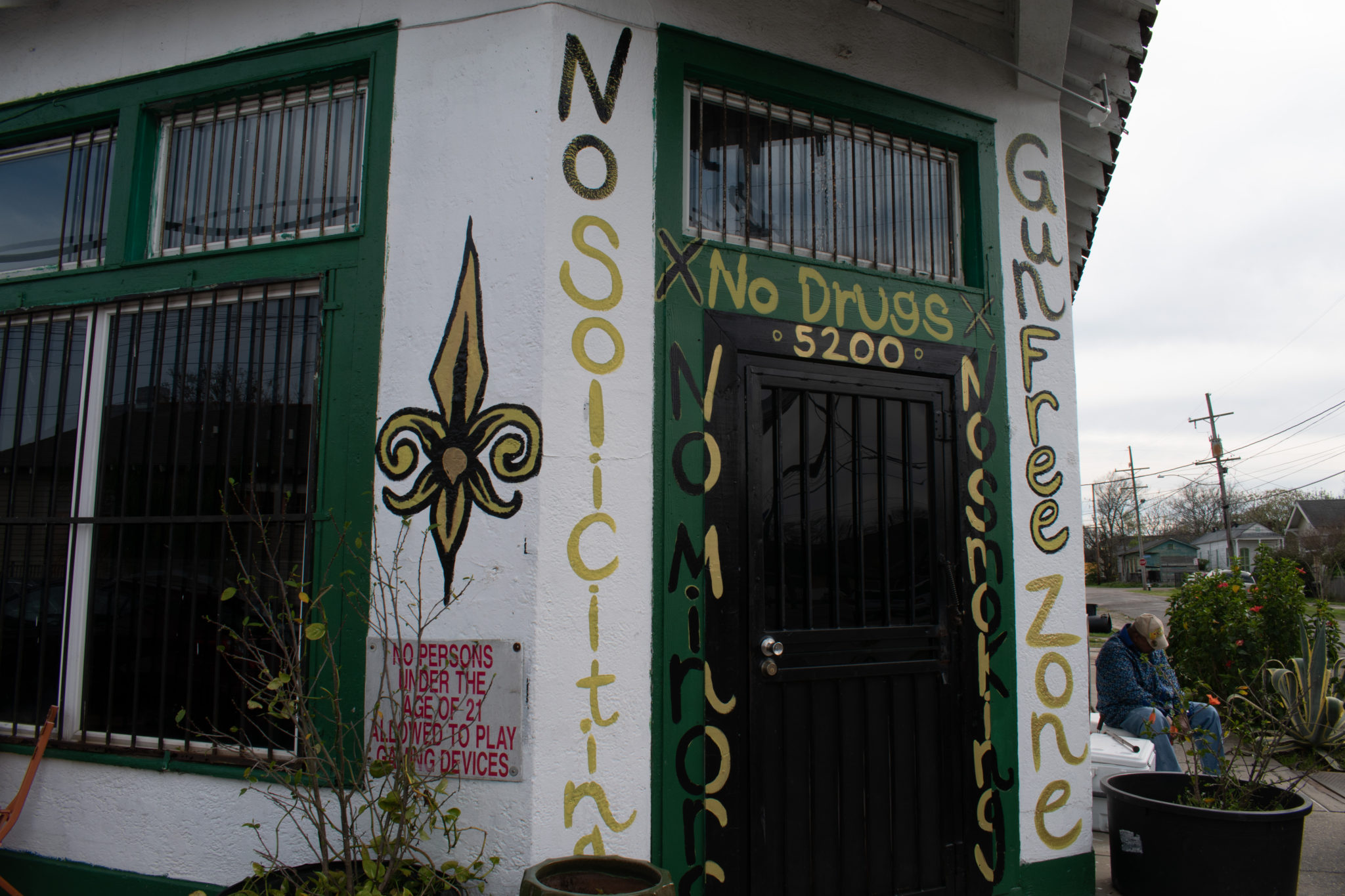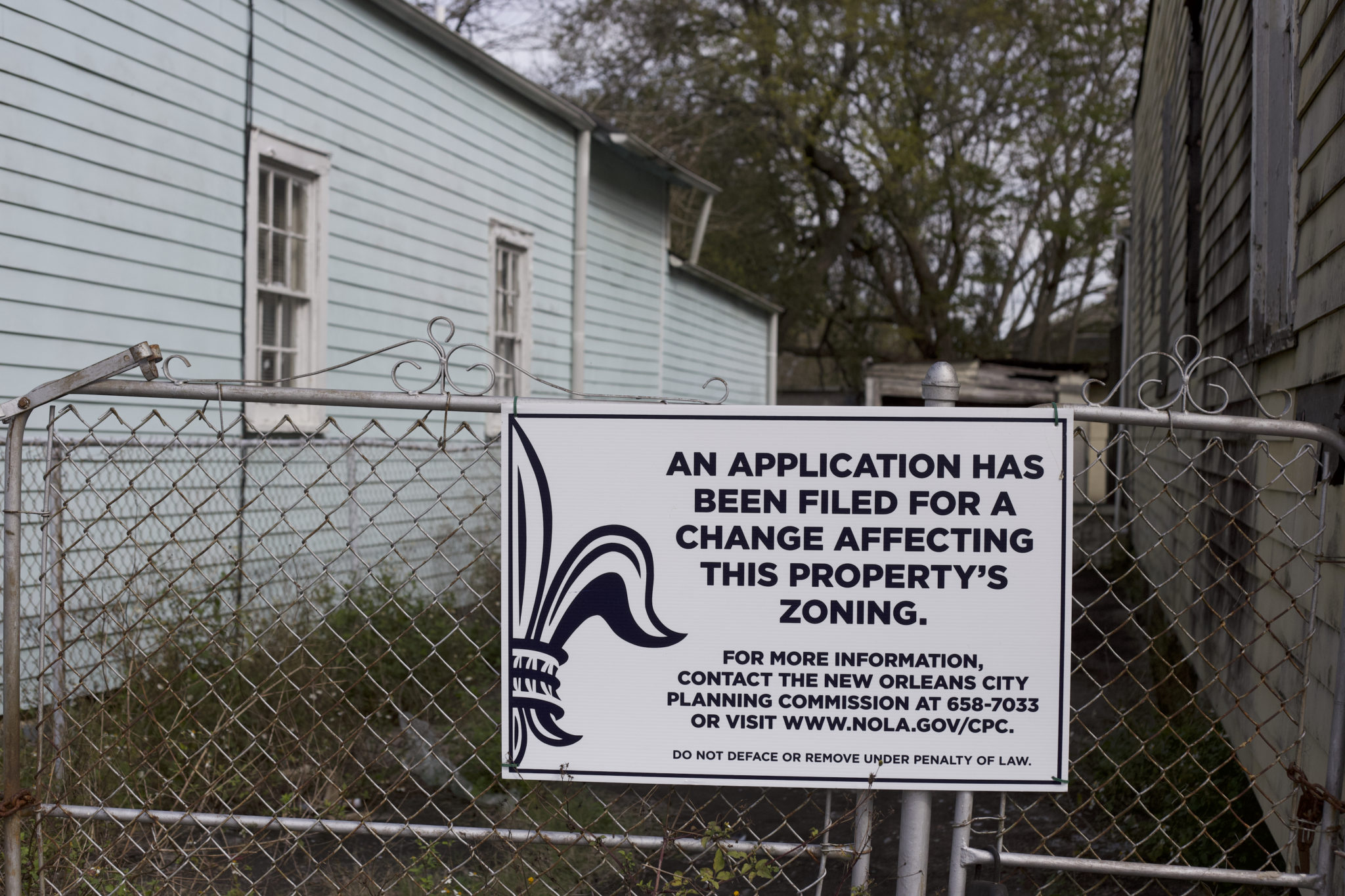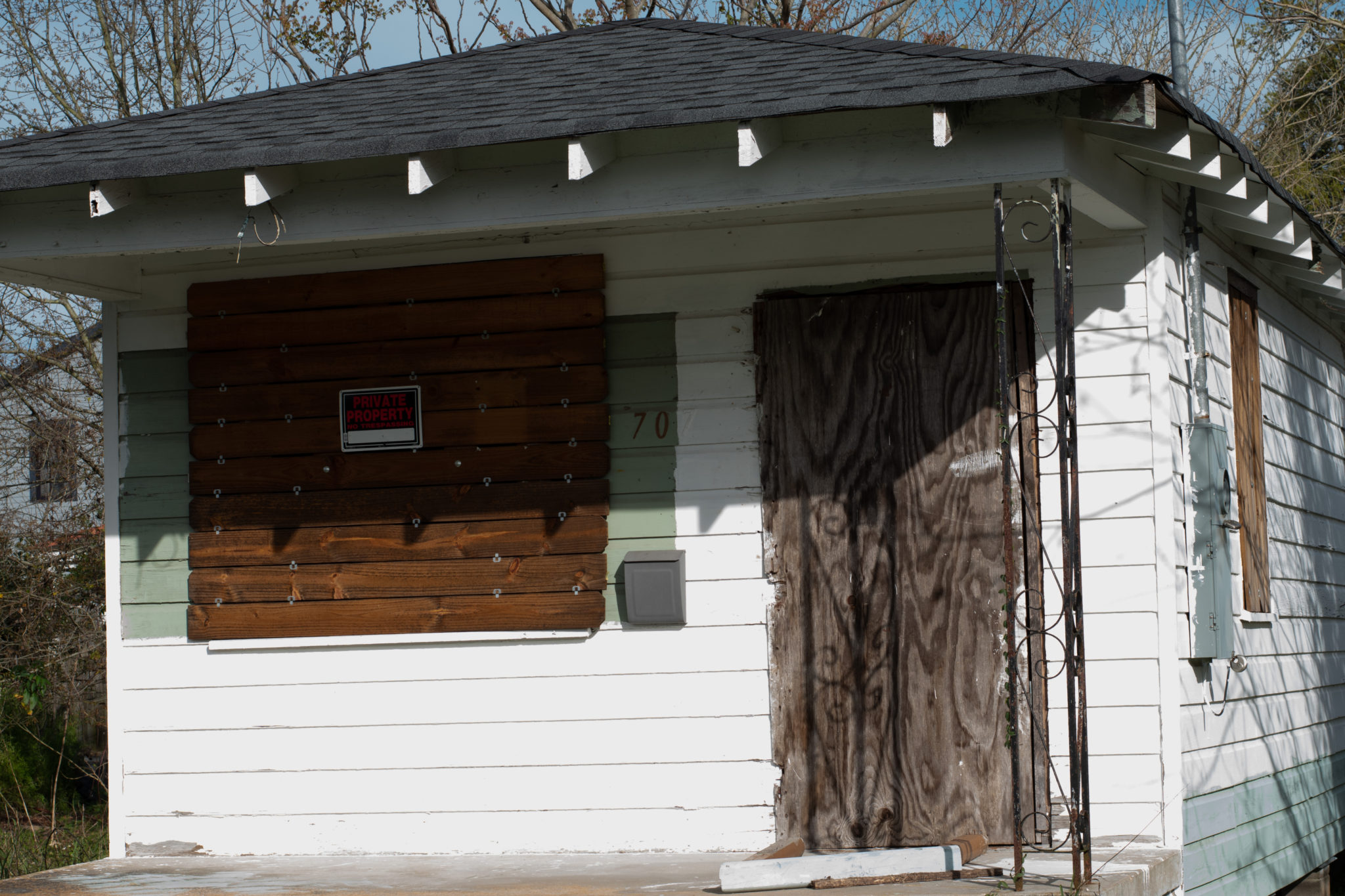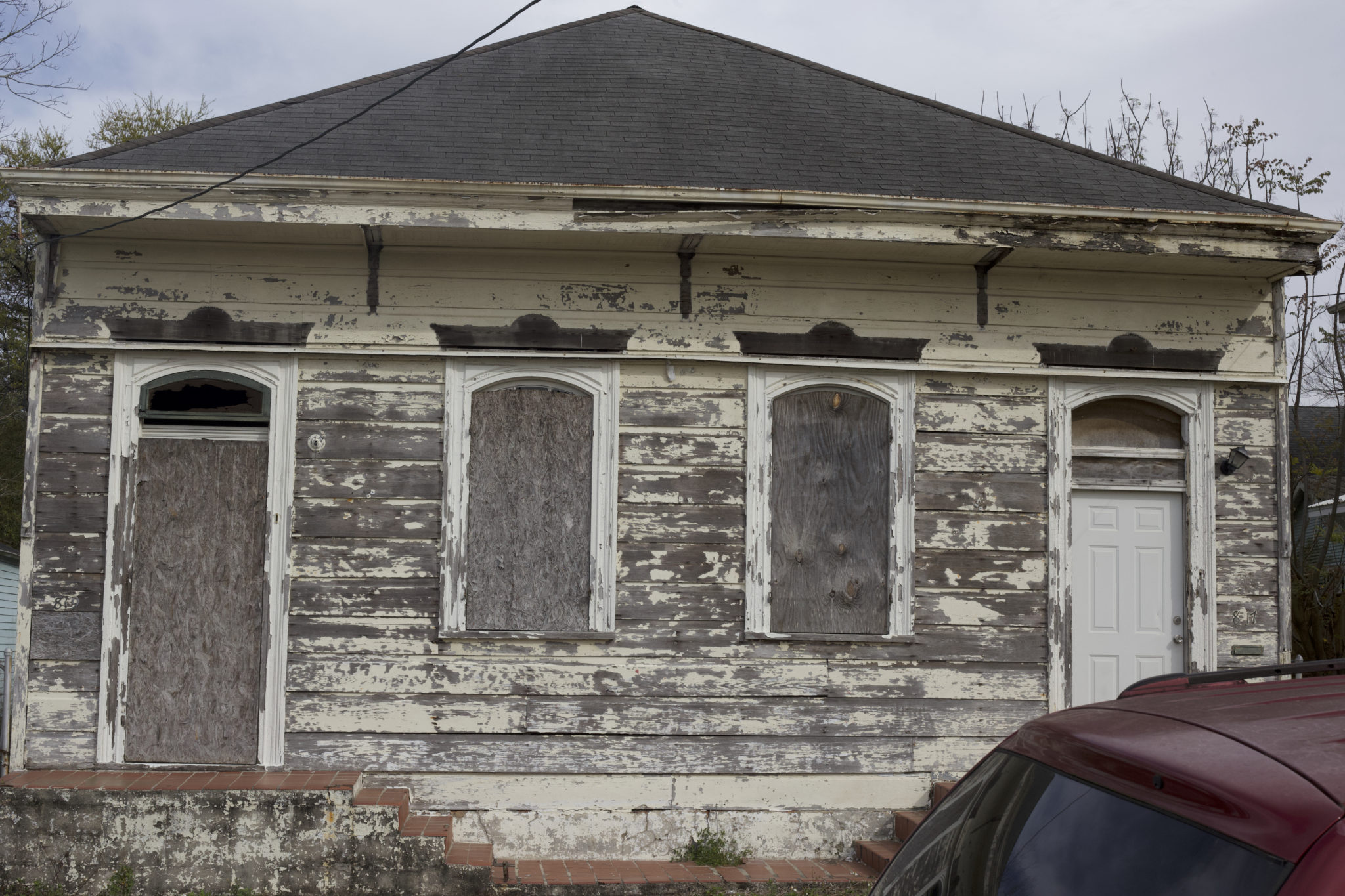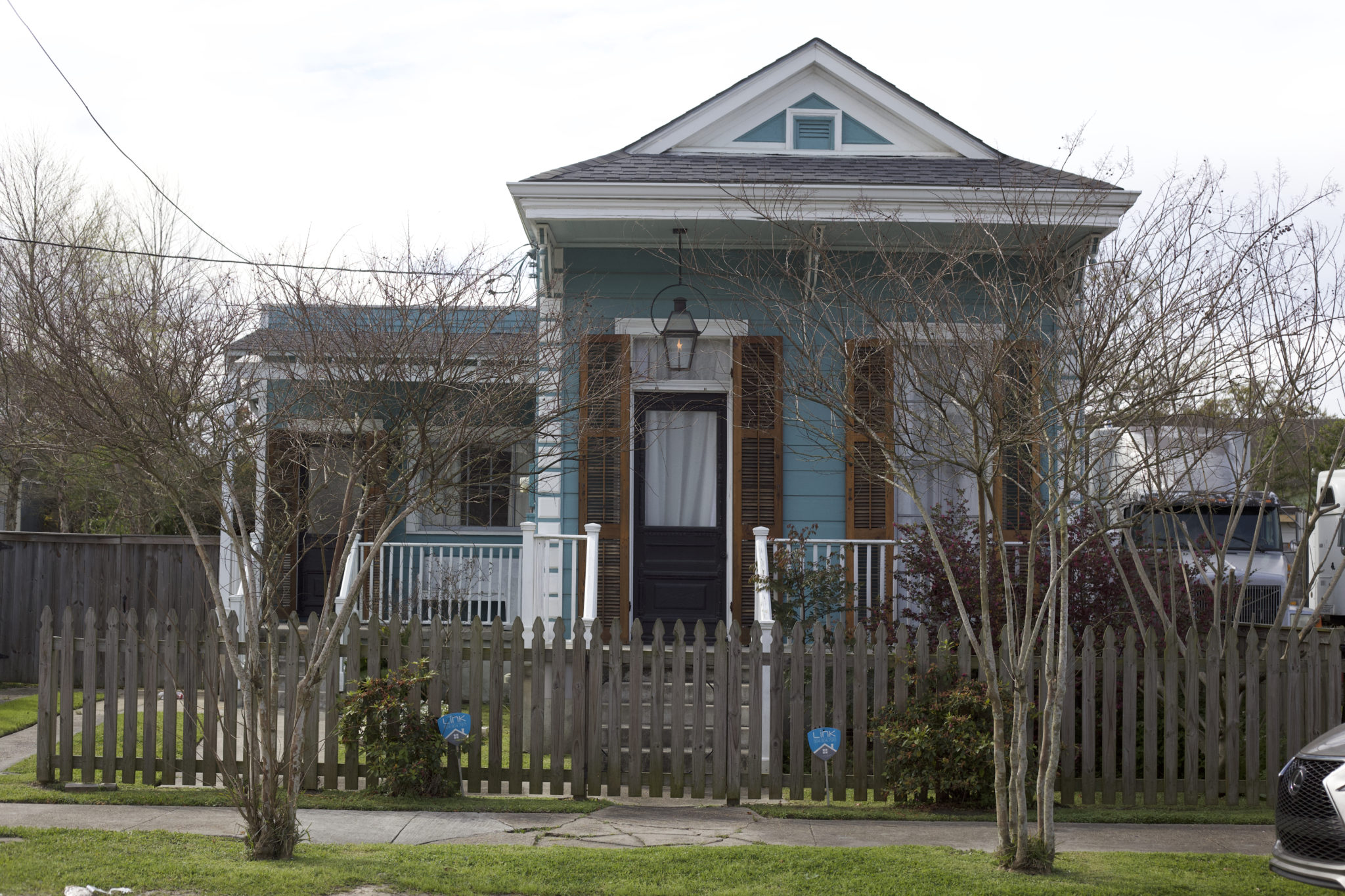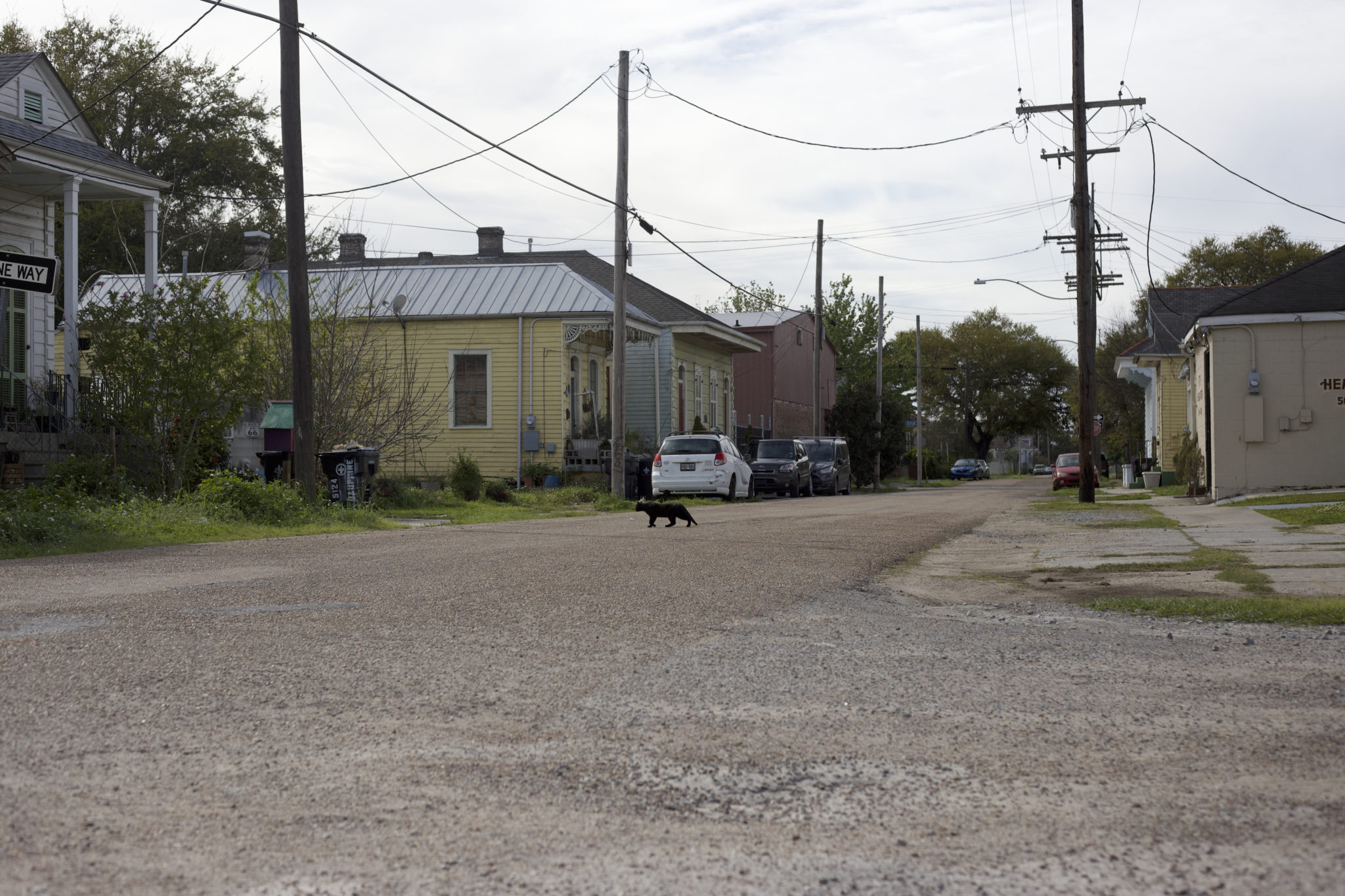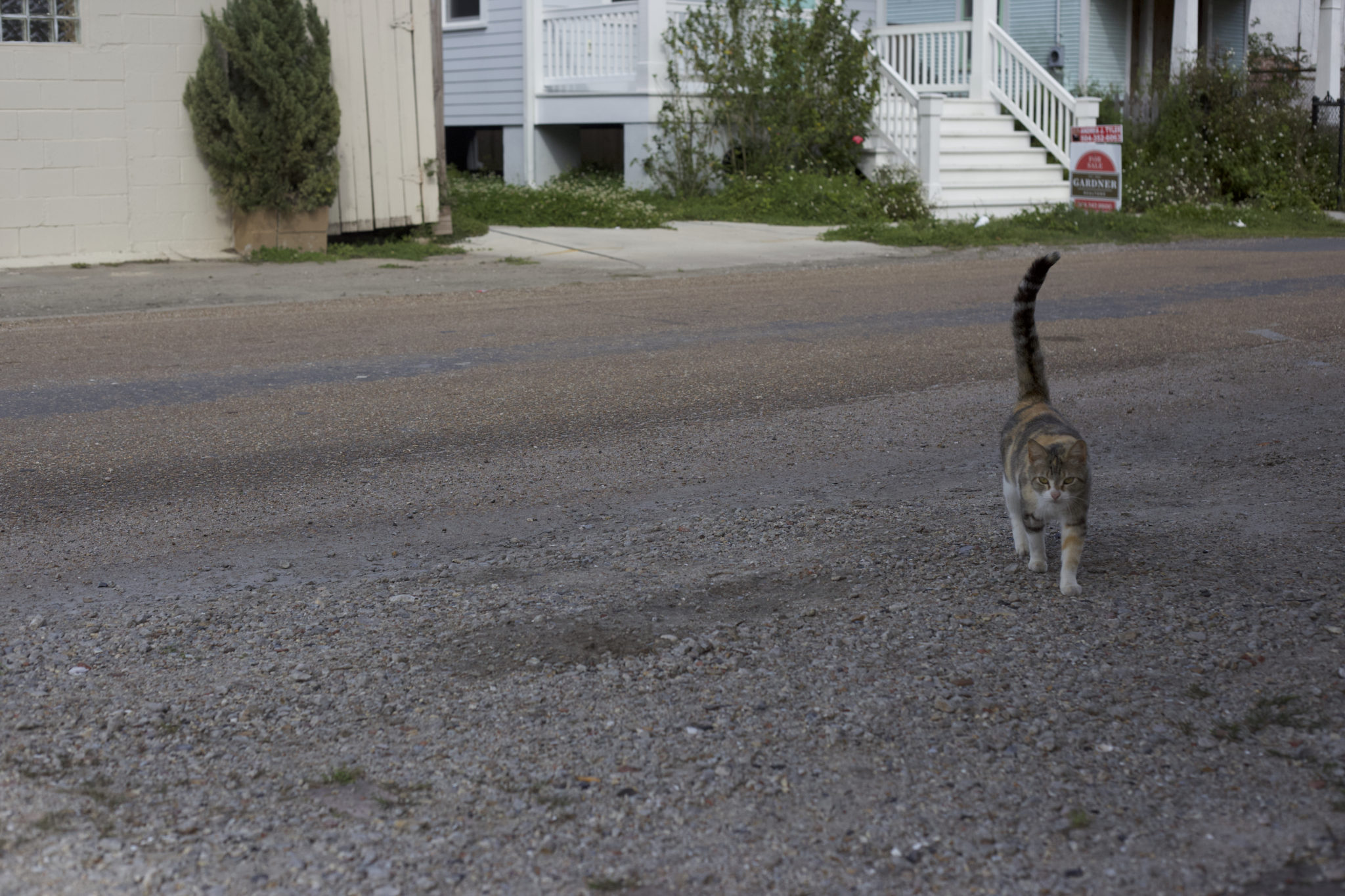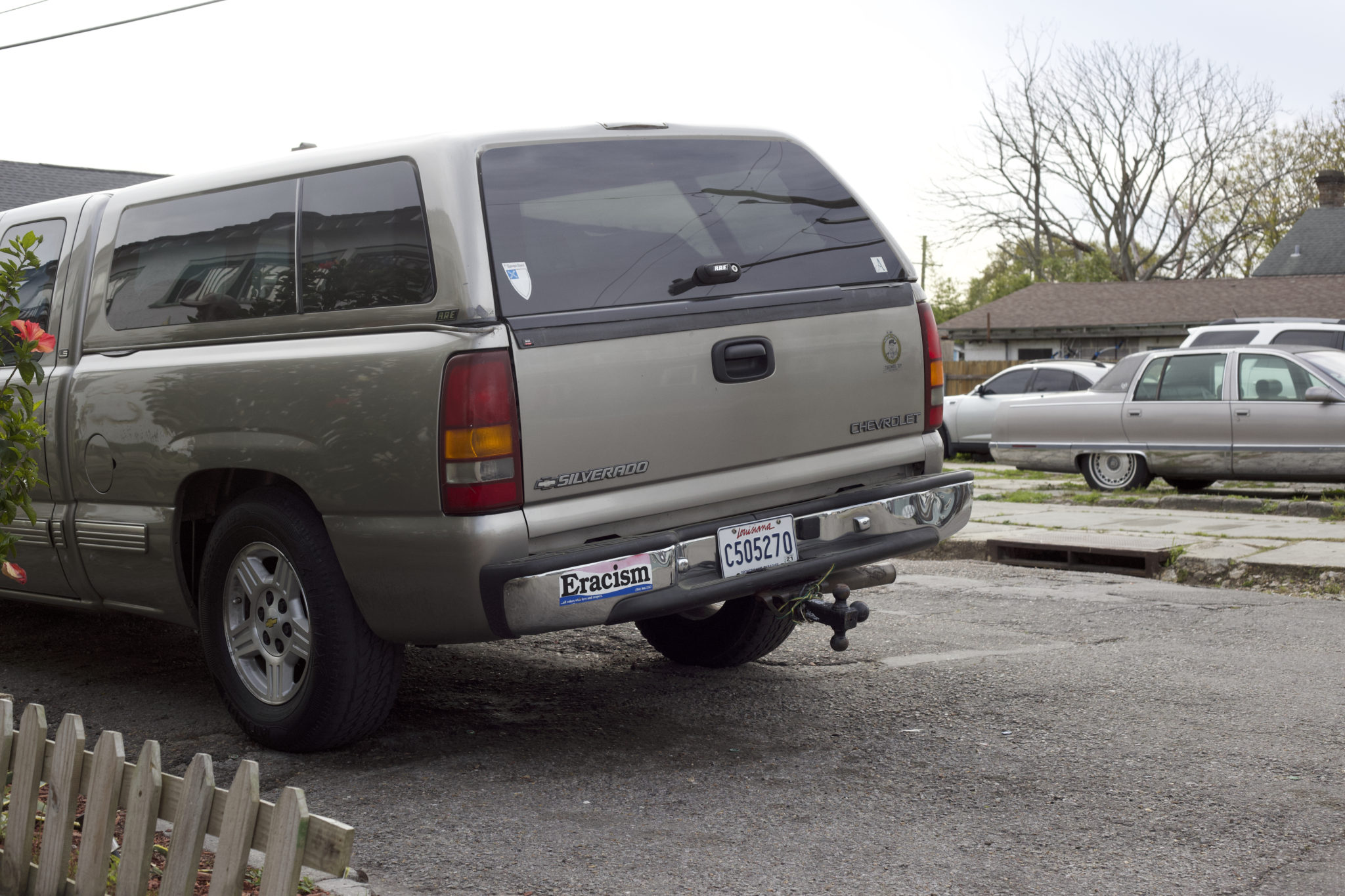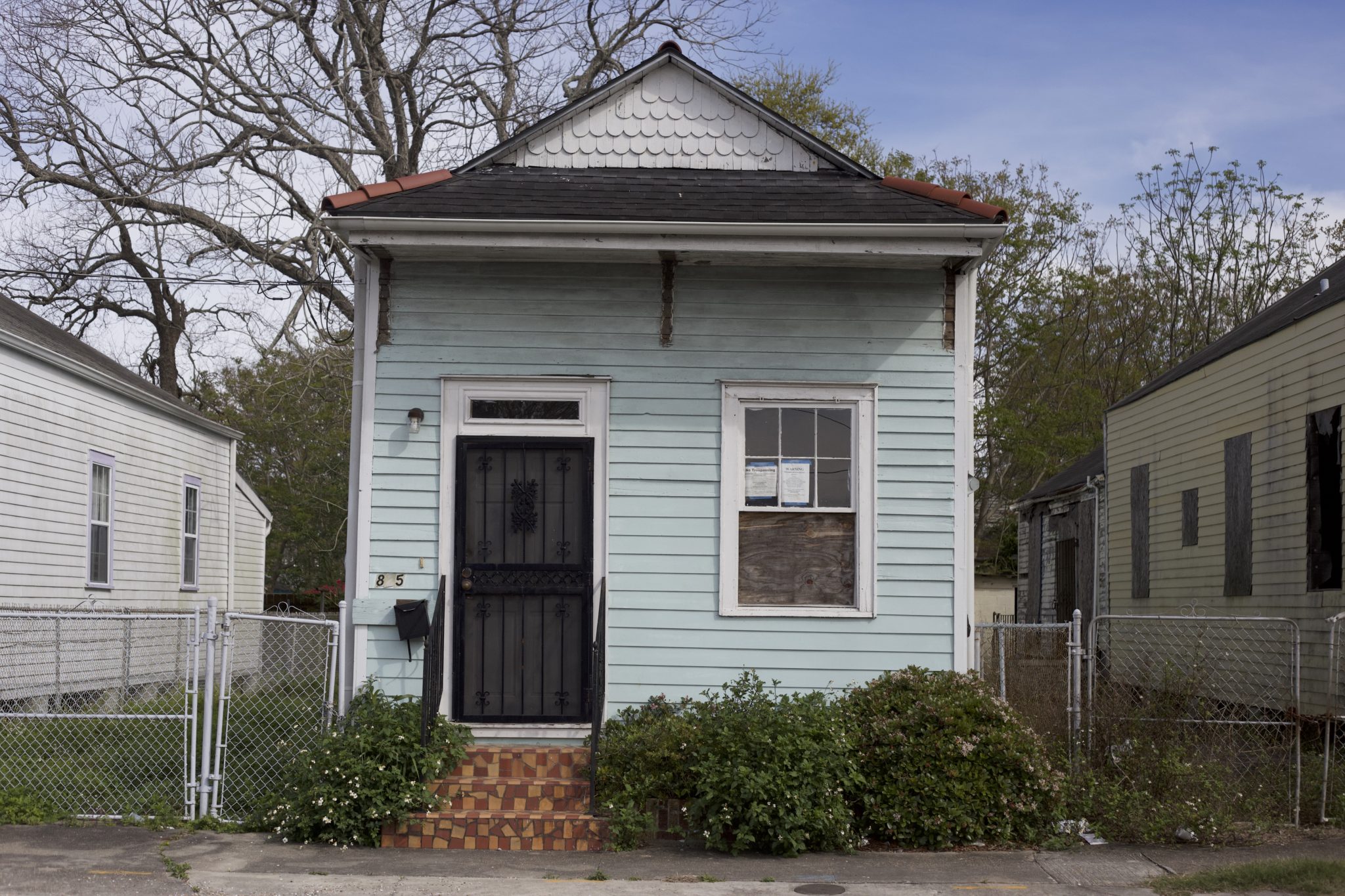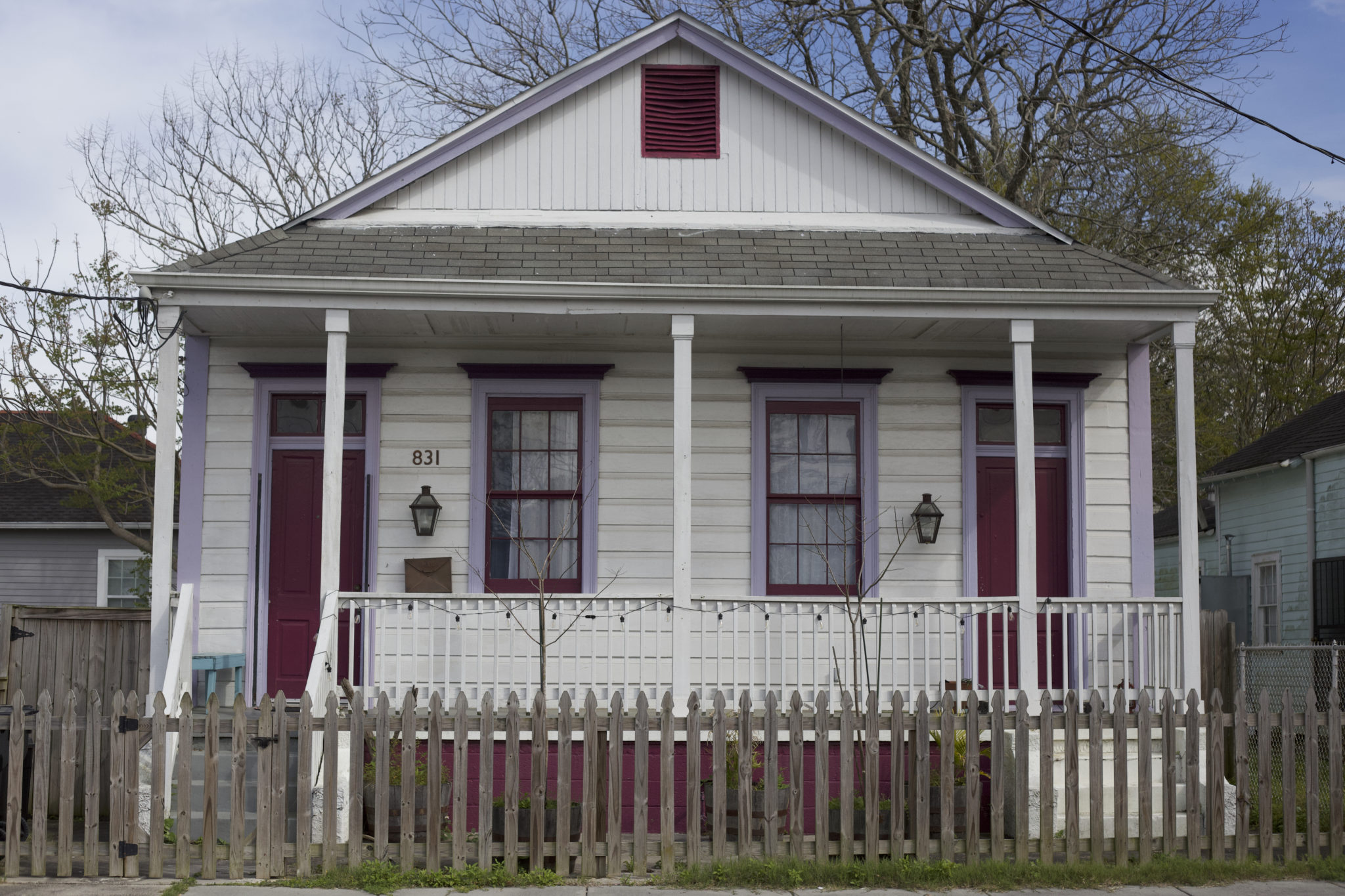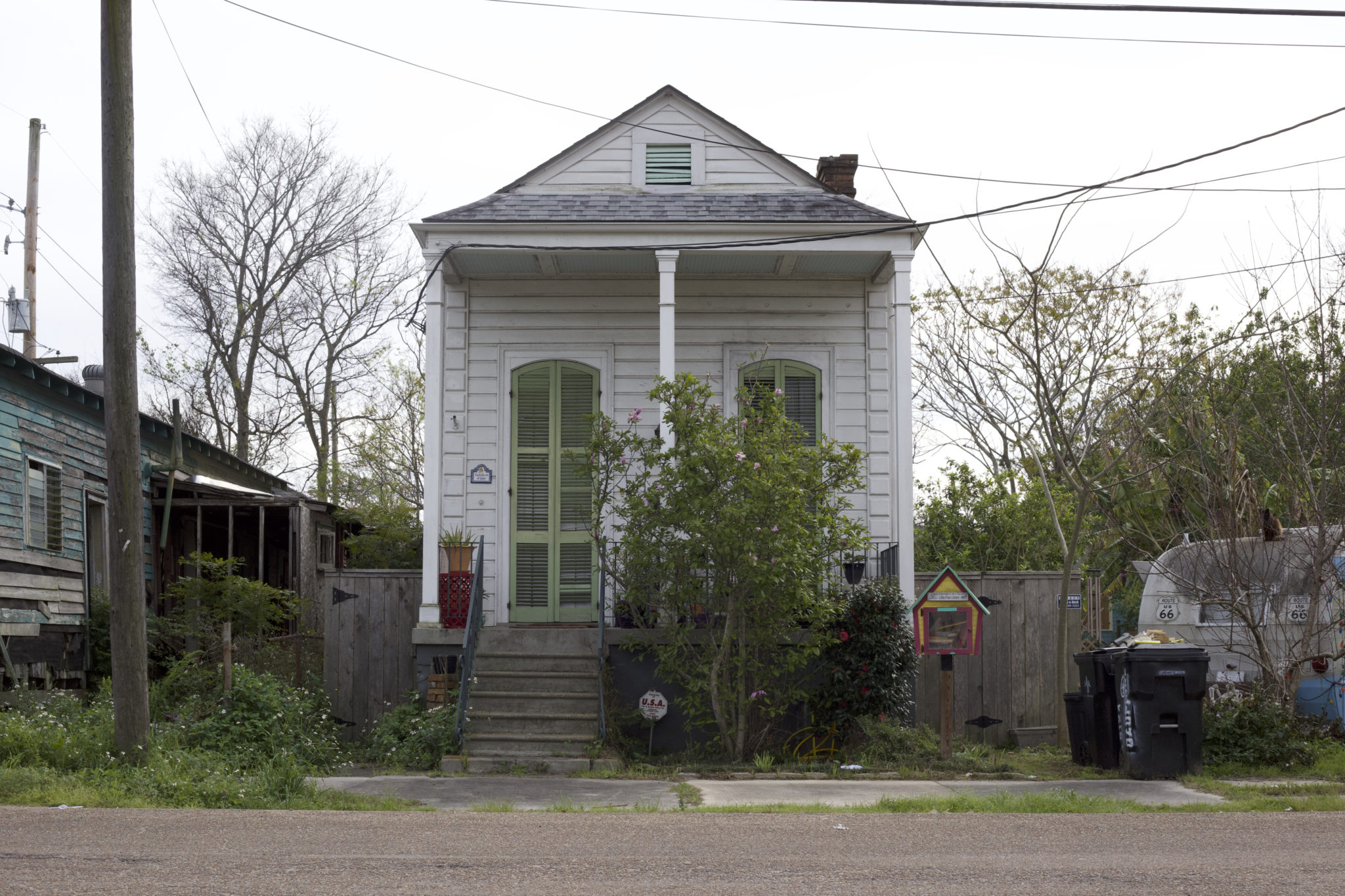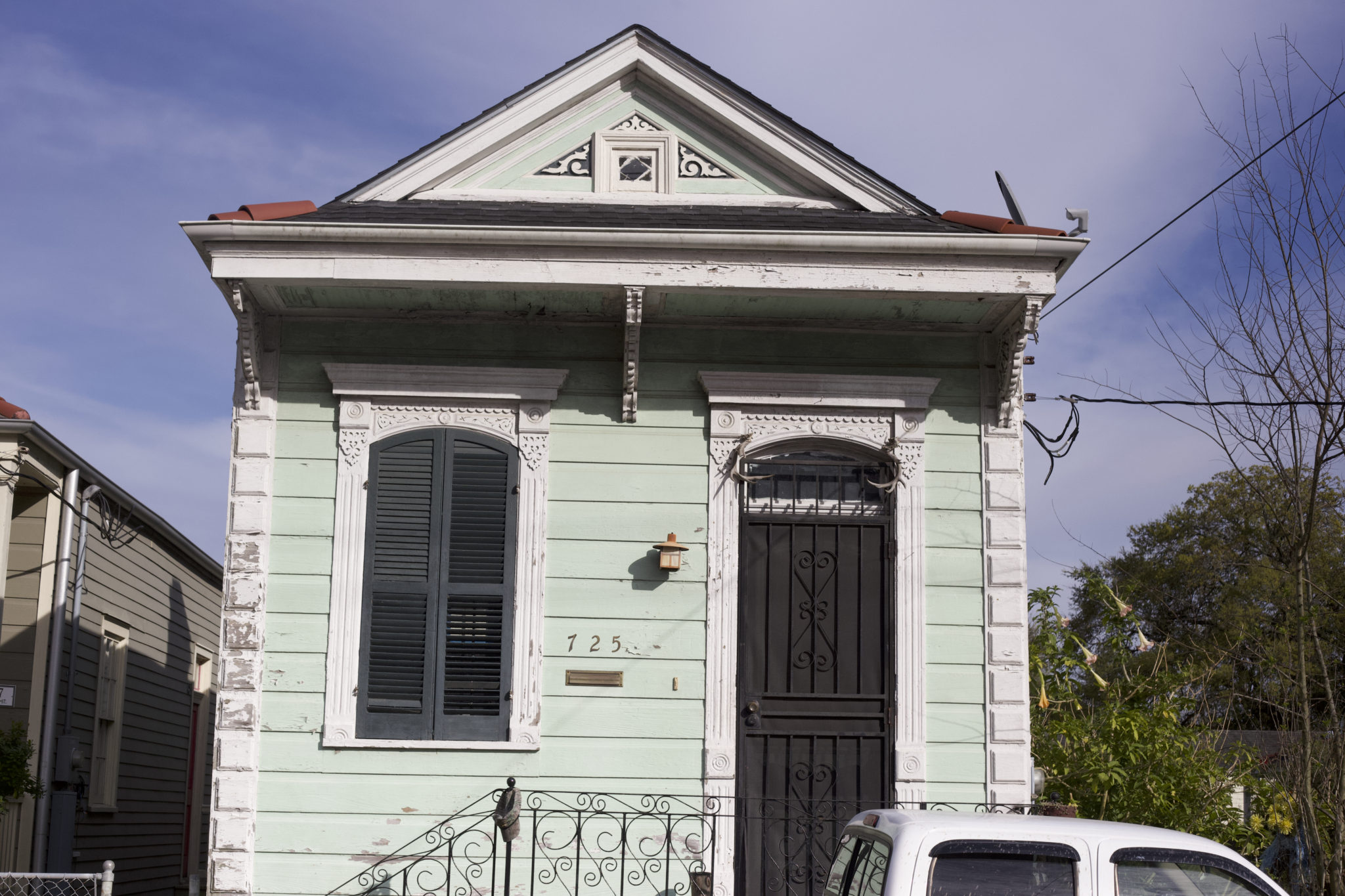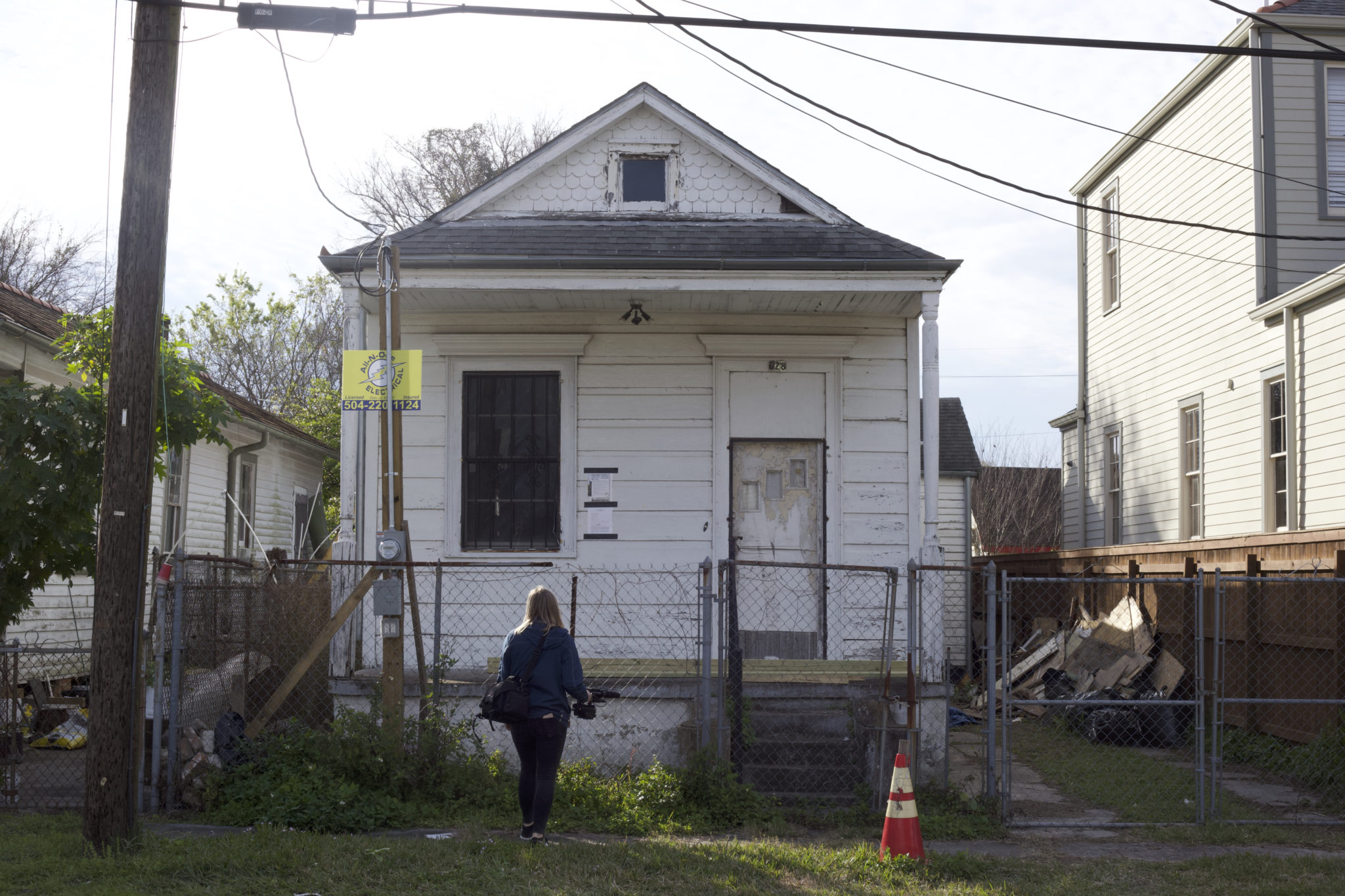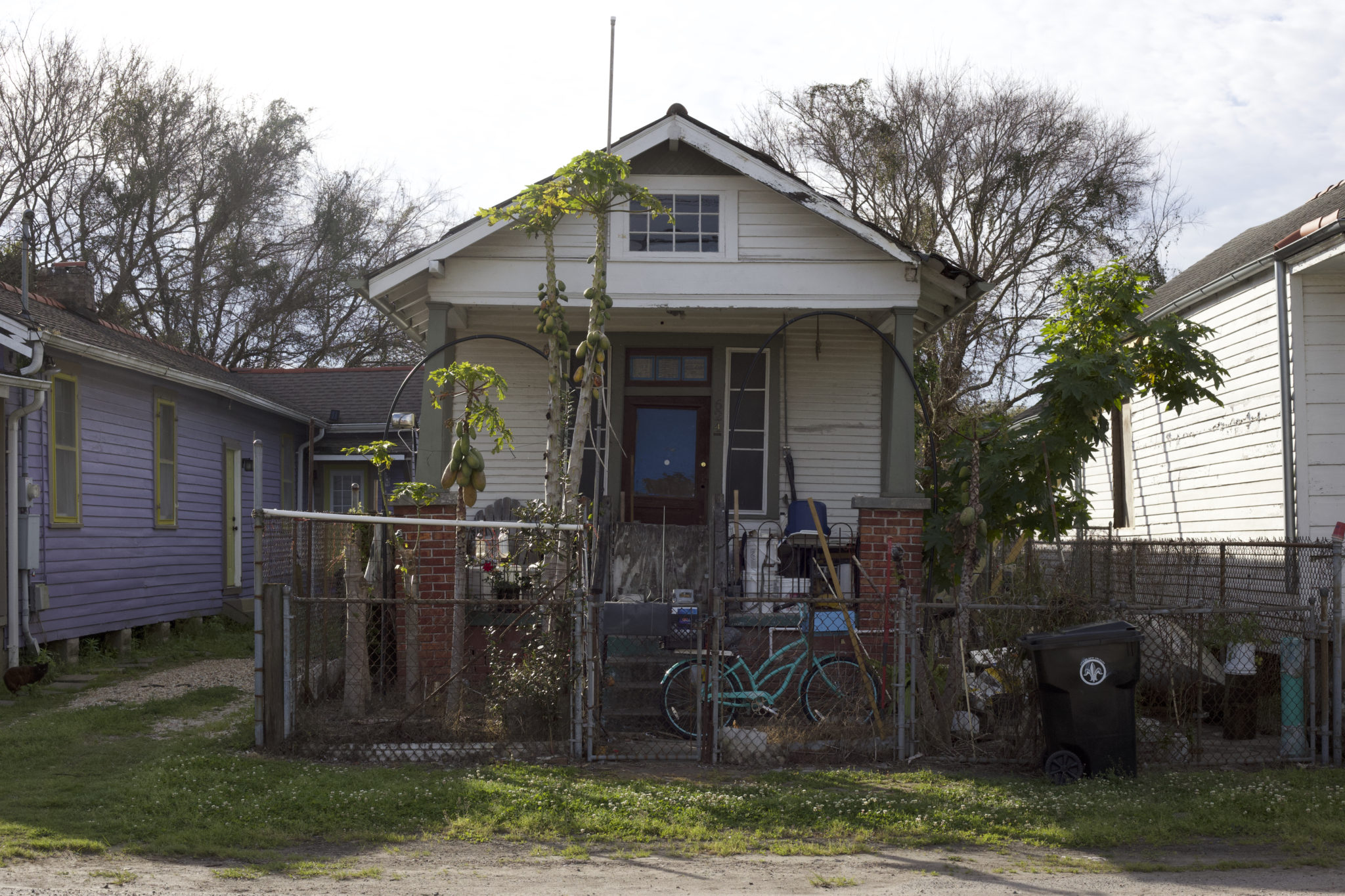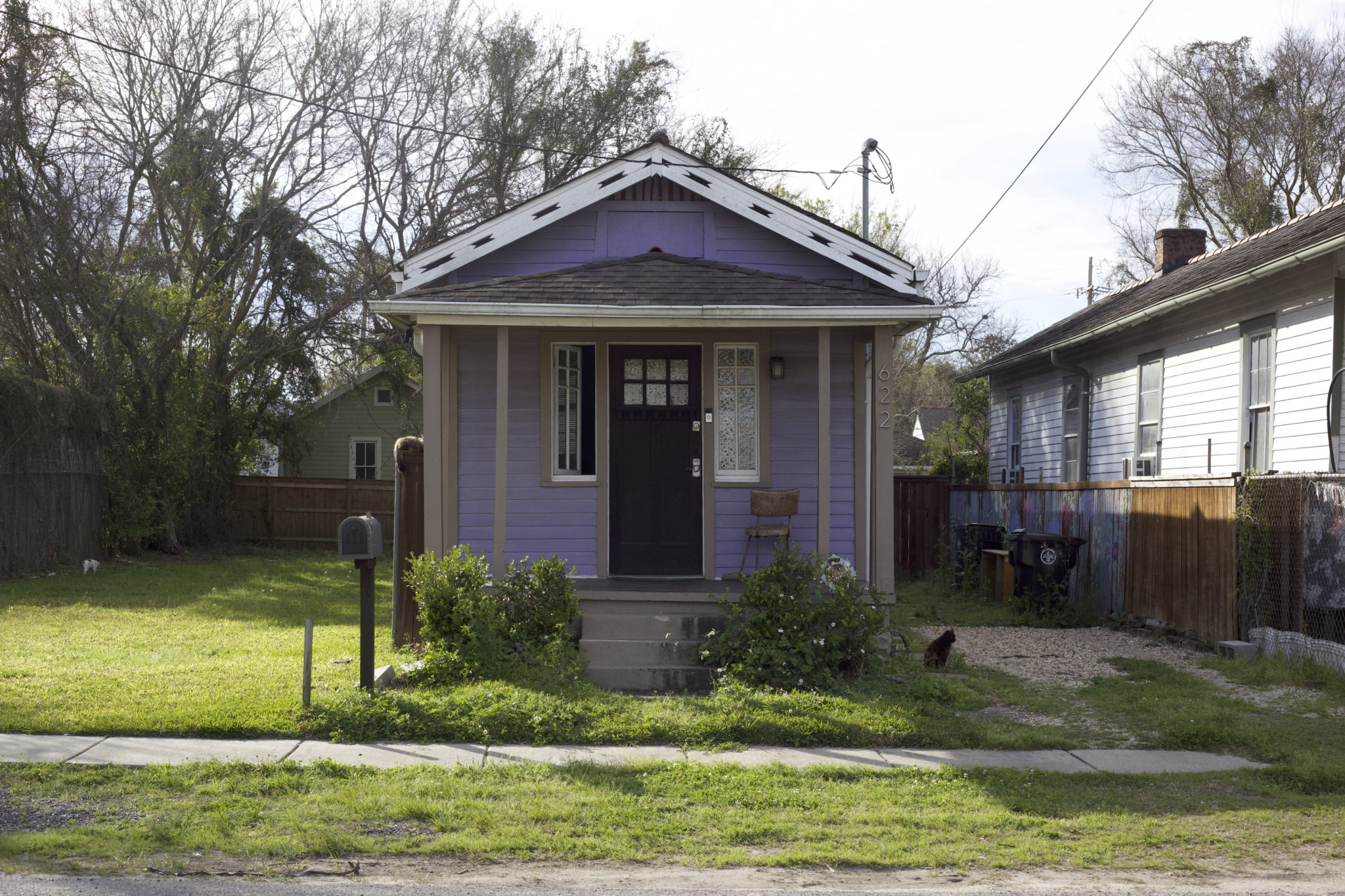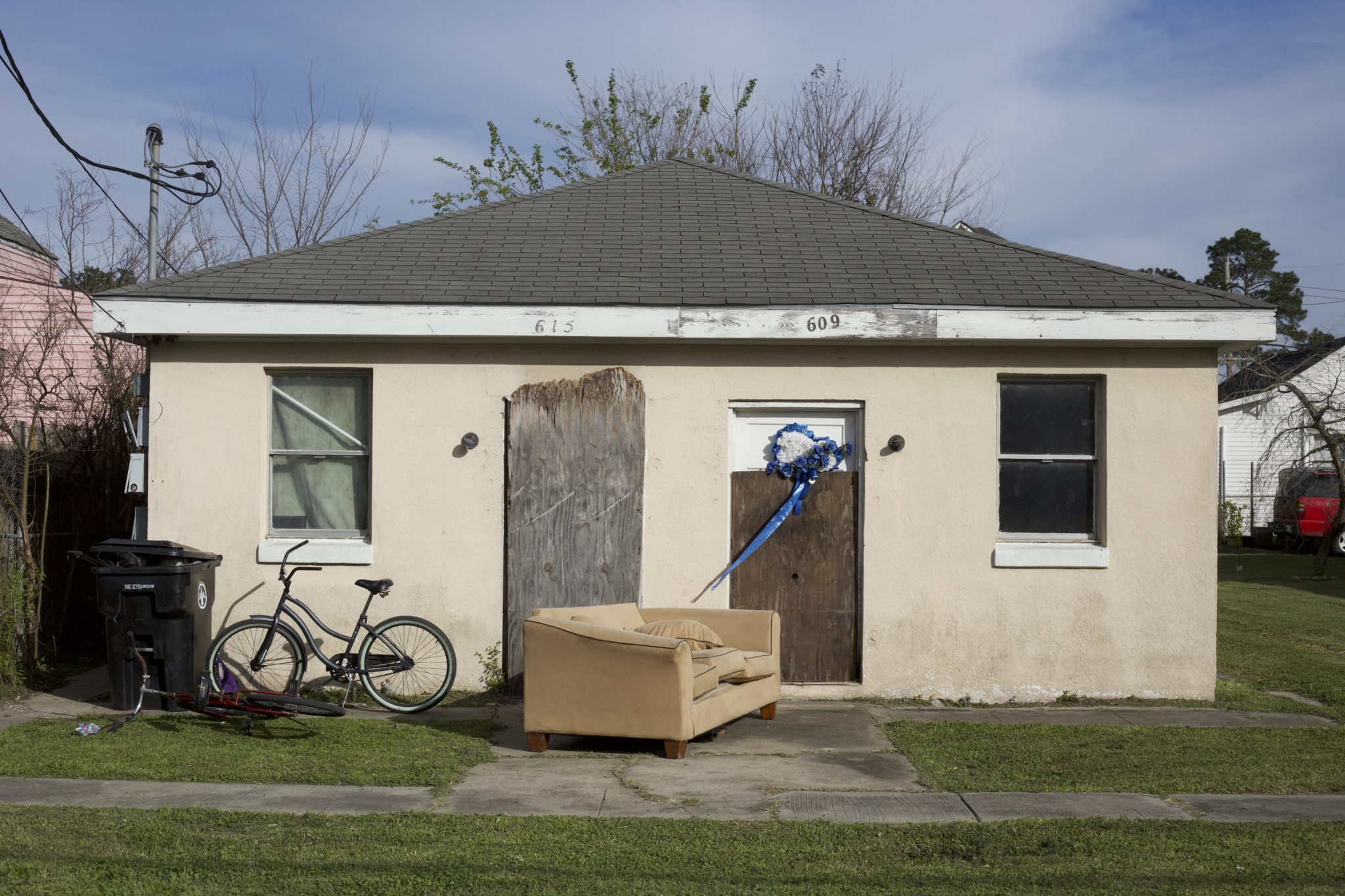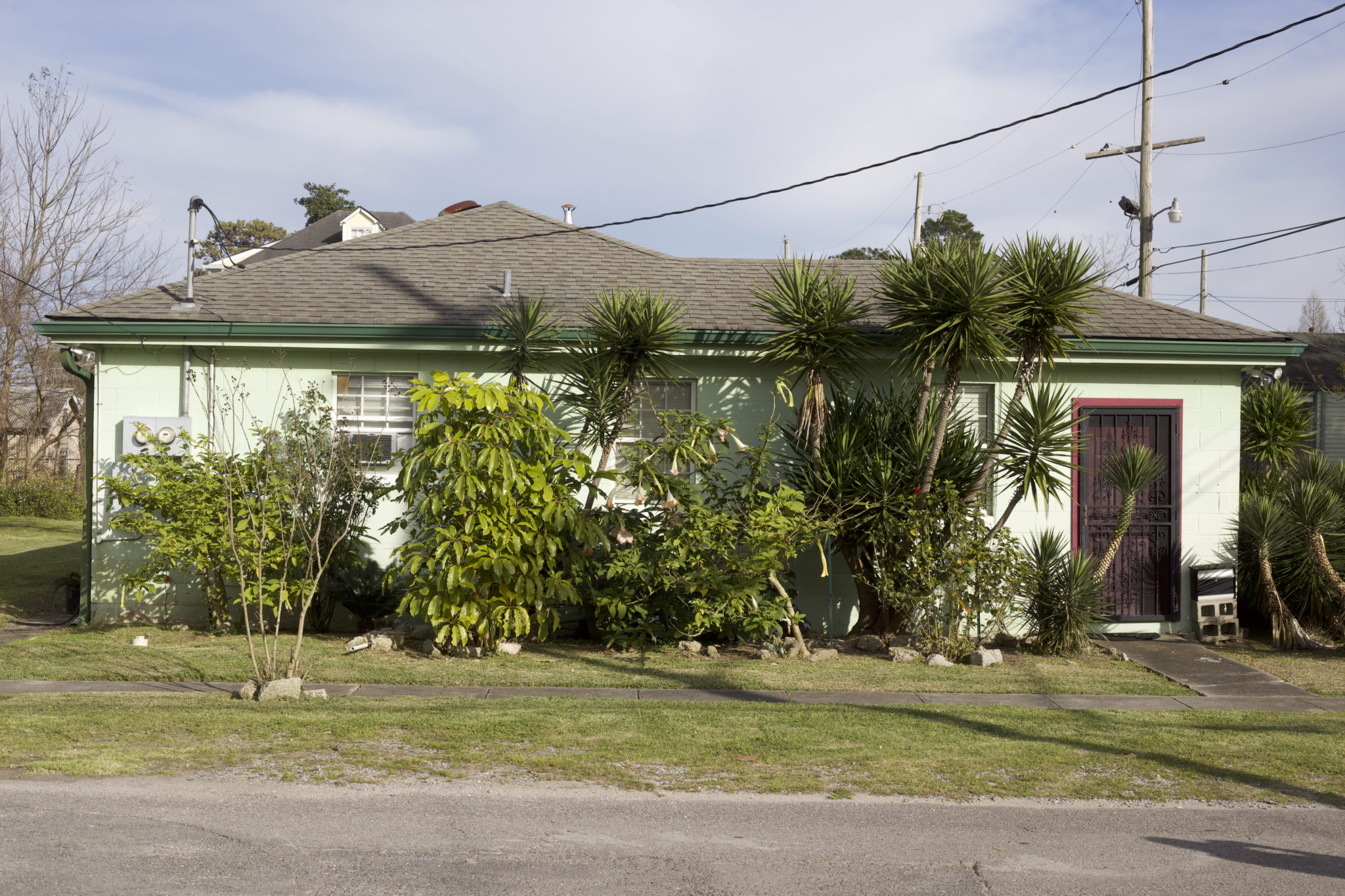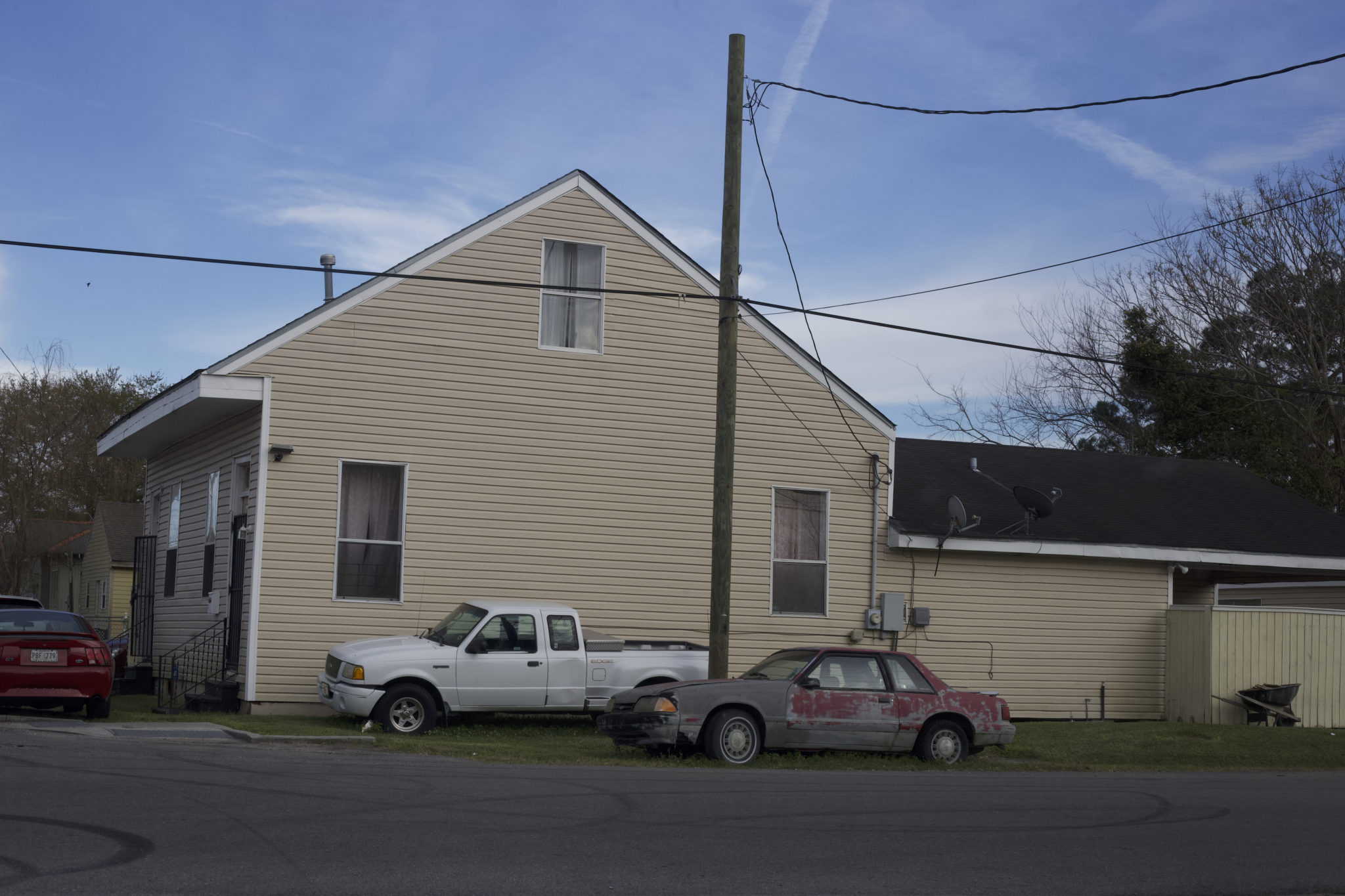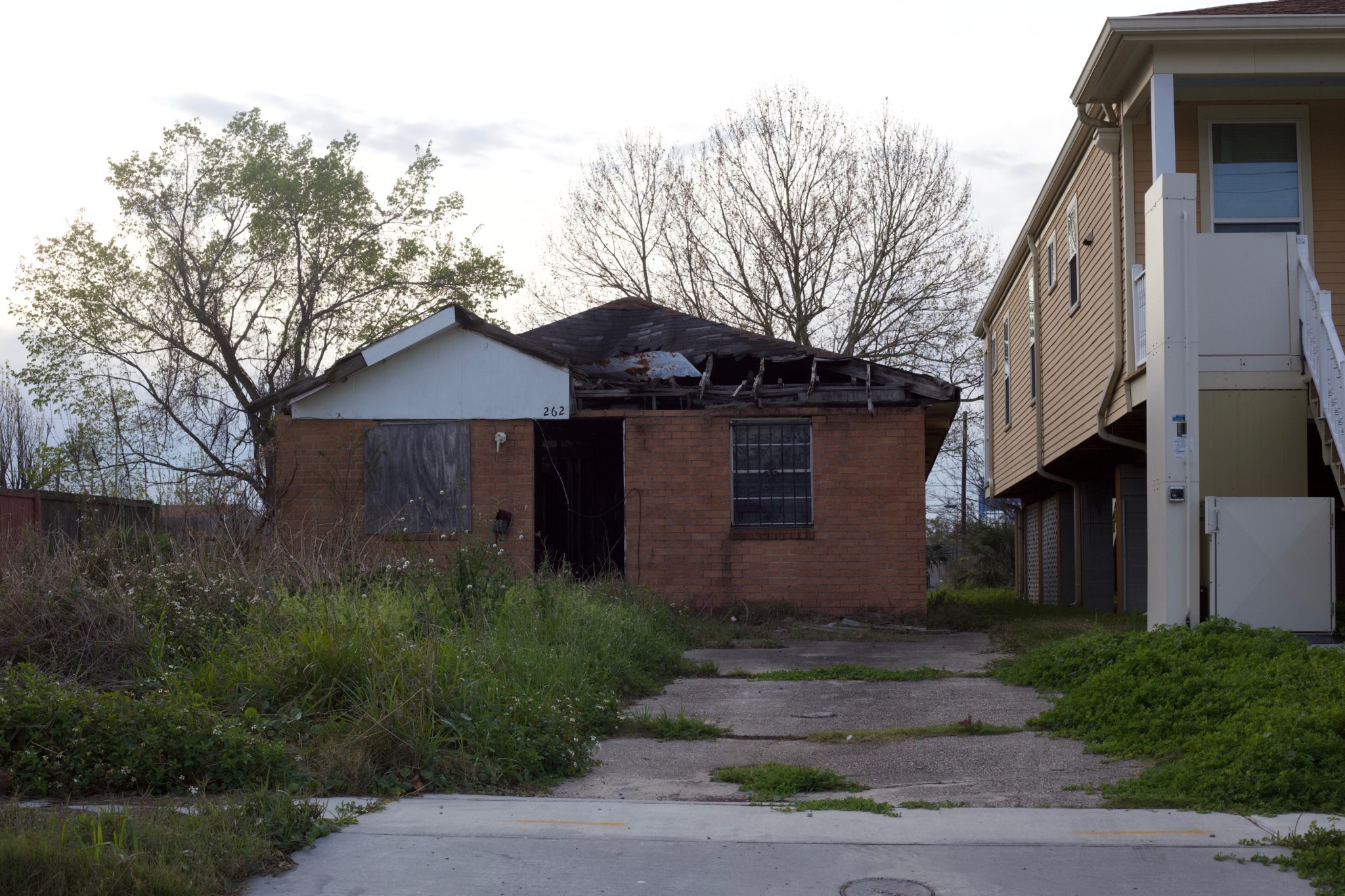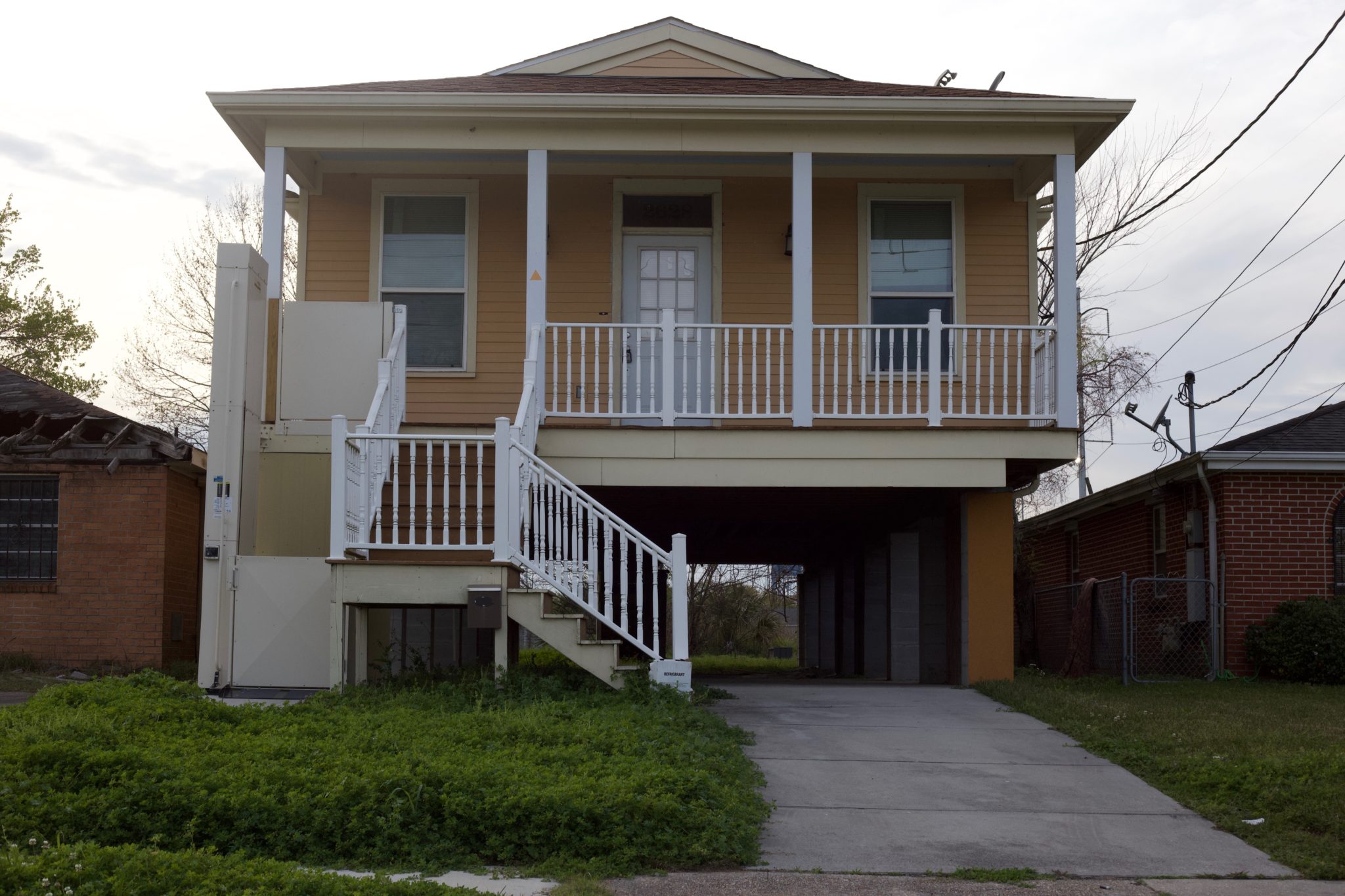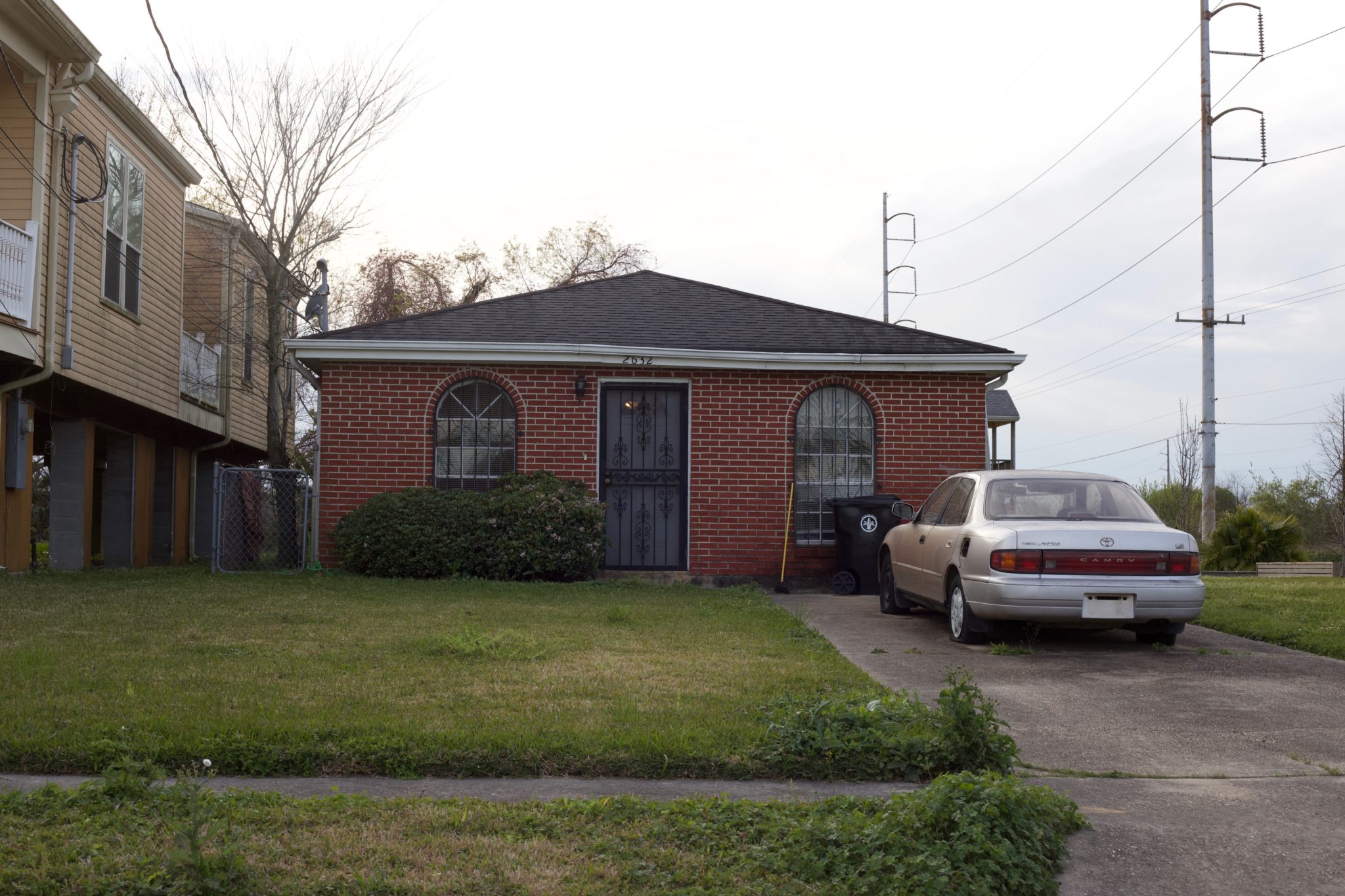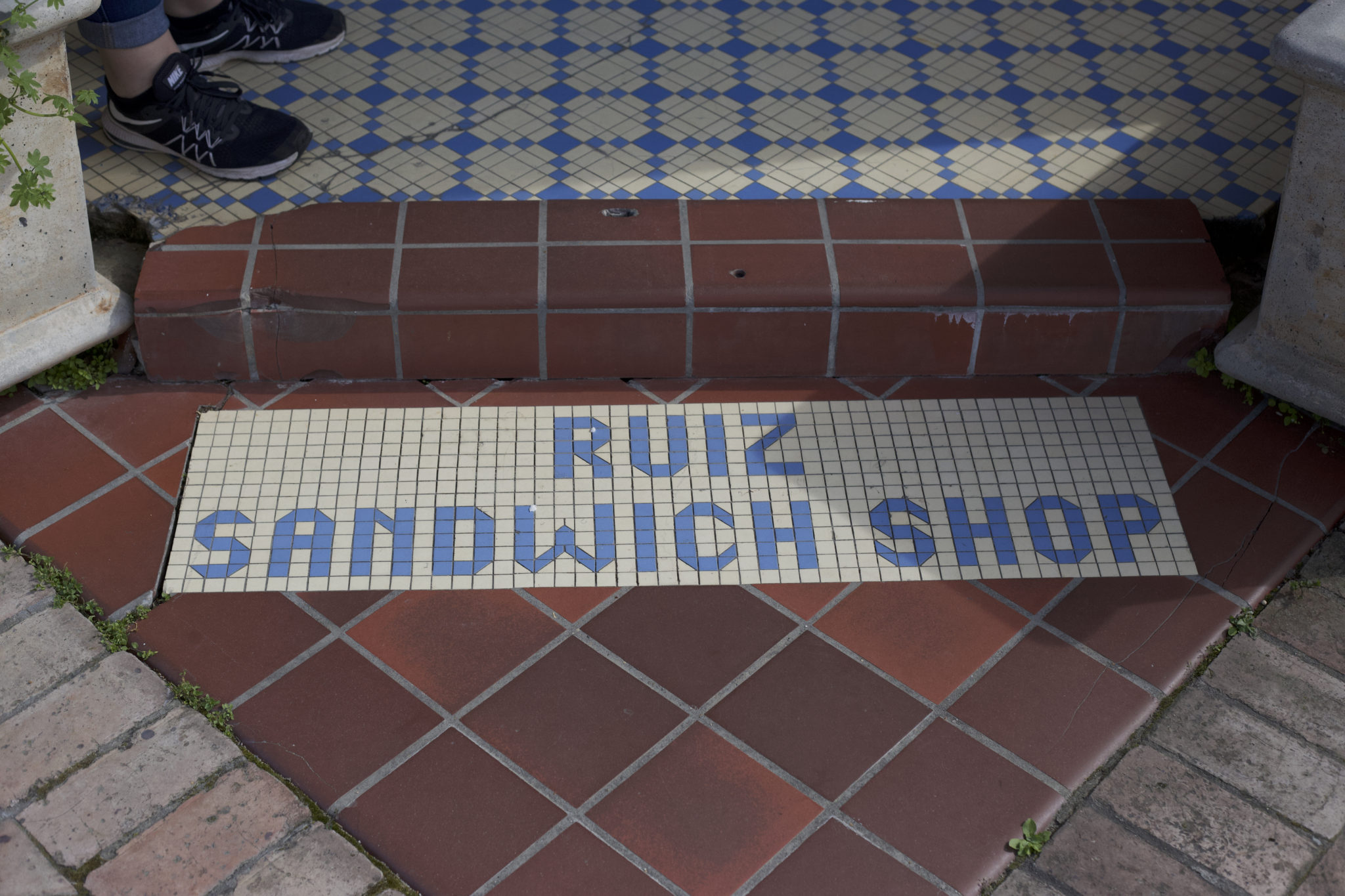Mercedes Gibson
Mercedes Gibson, 80, could barely be heard over the men shouting at the slot machines in the corner of her bar and restaurant, Mercedes’ Place, in the Lower Ninth Ward, a neighborhood in New Orleans. Two other men sat at the bar watching USC take on UCLA in college basketball. Her wrinkled hands shook slightly as she poured her diet Coke into a plastic cup.
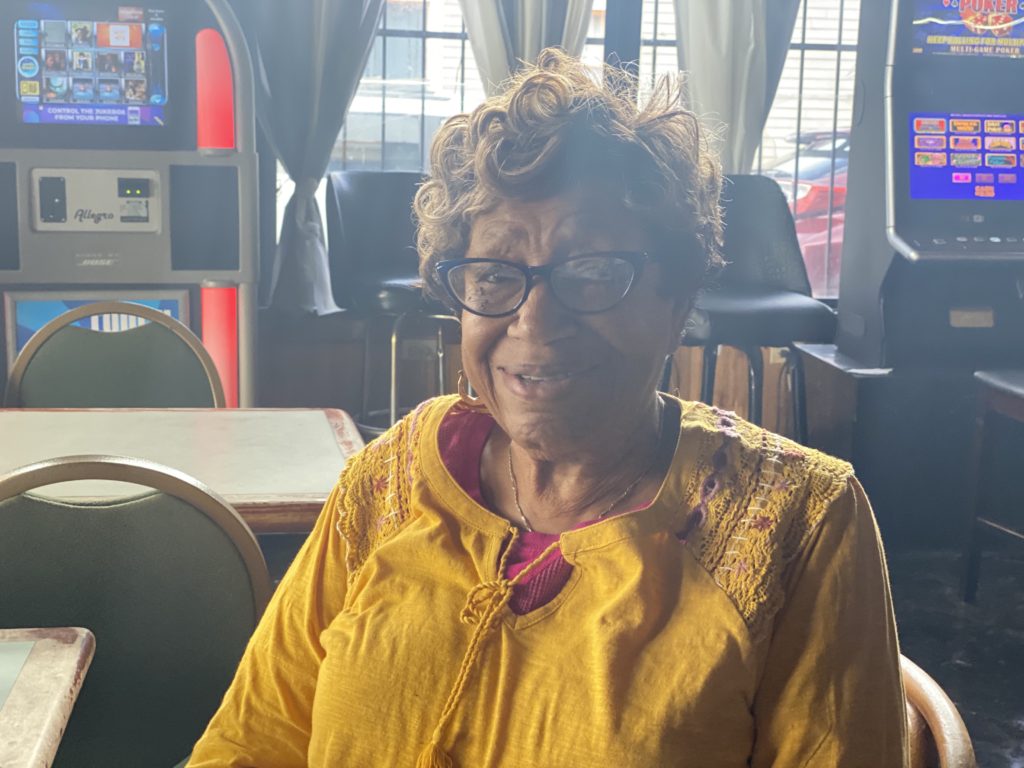
She owns the bar and restaurant with her daughter. Pictures of their family line the walls of the bar. “No soliciting,” “no drugs,” “no smoking,” “no minors” and “gun free zone” were painted on the outside of the entrance, along with the French fleur de lis symbol.
“You got to let them know that this is a decent place; we’re trying to run a decent place,” Gibson said.
Despite being an area with a history of crime, police don’t come by often.
“[Police] used to come here because they see people selling drugs around here, and they’d harass the hell out of me,” she said. “Whatever’s going on out there is their job. In here is my job.”
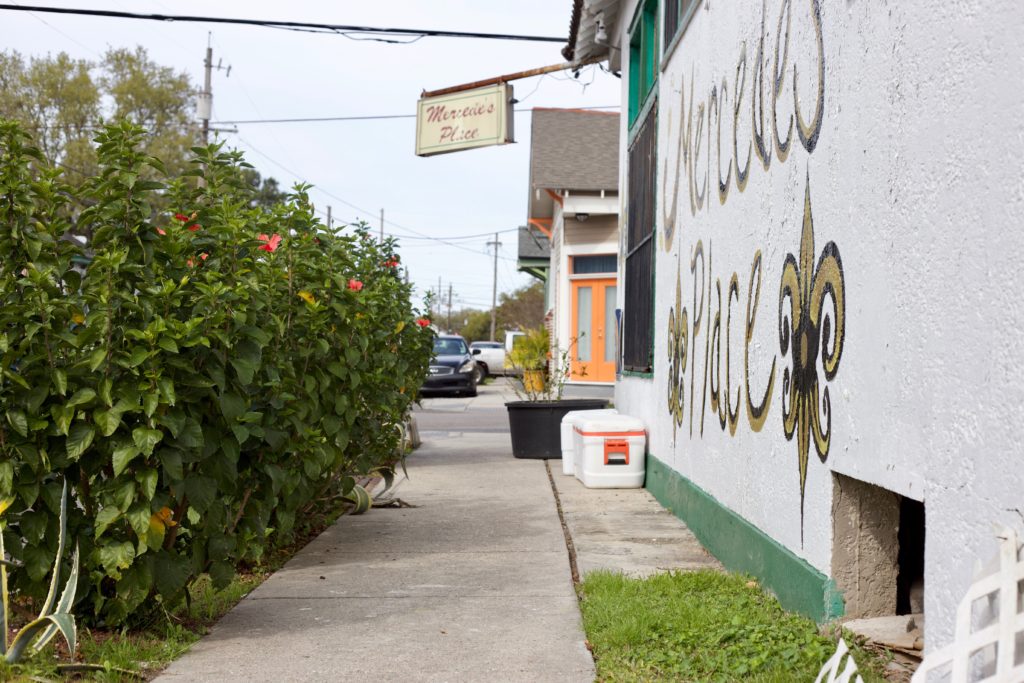
It took Gibson two years to rebuild what Hurricane Katrina destroyed. She had no source of income during that time, and she wasn’t allowed to open at any point during the rebuilding process.
Deborah Wilson
Deborah Wilson, 60, received $10,000 to compensate for her losses, which were everything she owned, including her business, Mercedes’ Place. She said it wasn’t nearly enough money to bounce back from Hurricane Katrina.
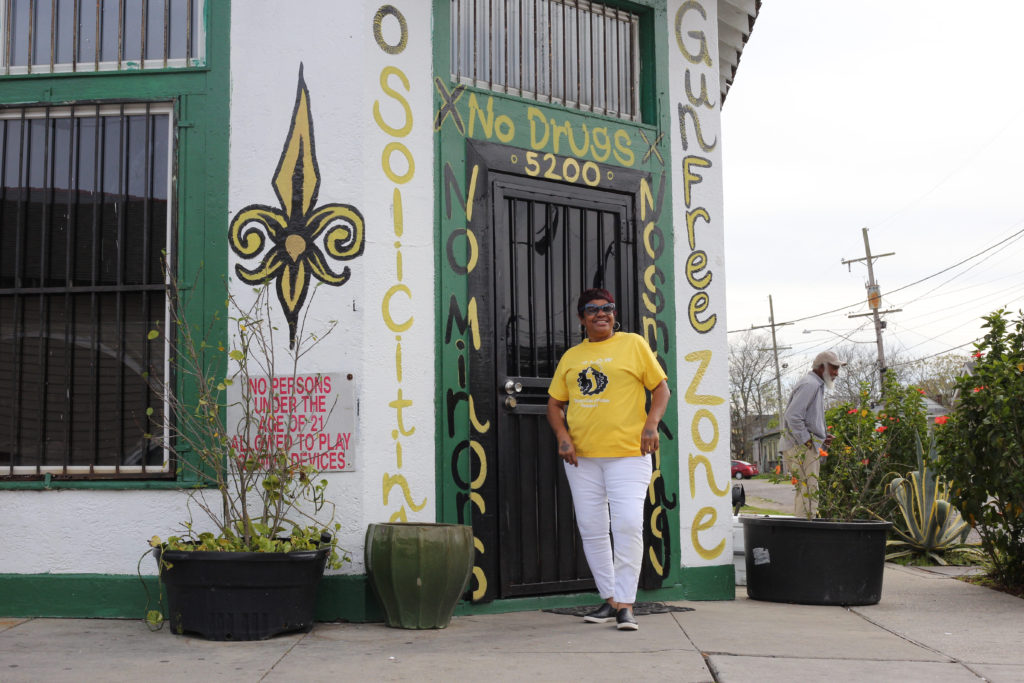
Wilson is a great-grandmother and Mercedes’ daughter. She knew everyone who walked in and out of the bar, offering them turkey necks and a crab bar, bidding them good luck in their card game and nodding “hello” to people who walked by with her gold hoop earrings dangling in her ears.
“That’s all we do around here, play Spades,” she said.
Matthews Gibson
Matthews Gibson is Mercedes’ son. He received $6,000 from the government following Hurricane Katrina. However, he said they forced him to pay $8,000 back because he didn’t lose enough during the natural disaster.
“We got the last of everything, whatever it was,” Gibson said. “Houses are still abandoned.
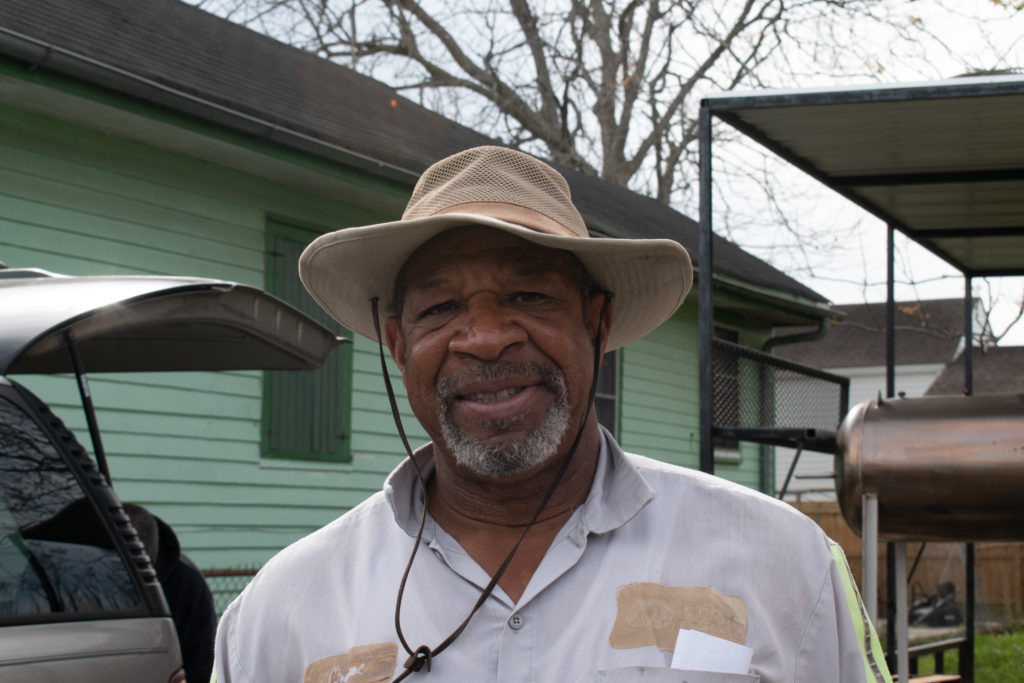
He was living at his mom’s house when Katrina hit and they went to the Super Dome. Gibson remembered his experience there well, though he wished he didn’t.
“It was rough. People were raping kids, people dying. A U-Haul truck came with some people in it. In the back, they had all the old people in it, old dead people.”
Matthews Gibson
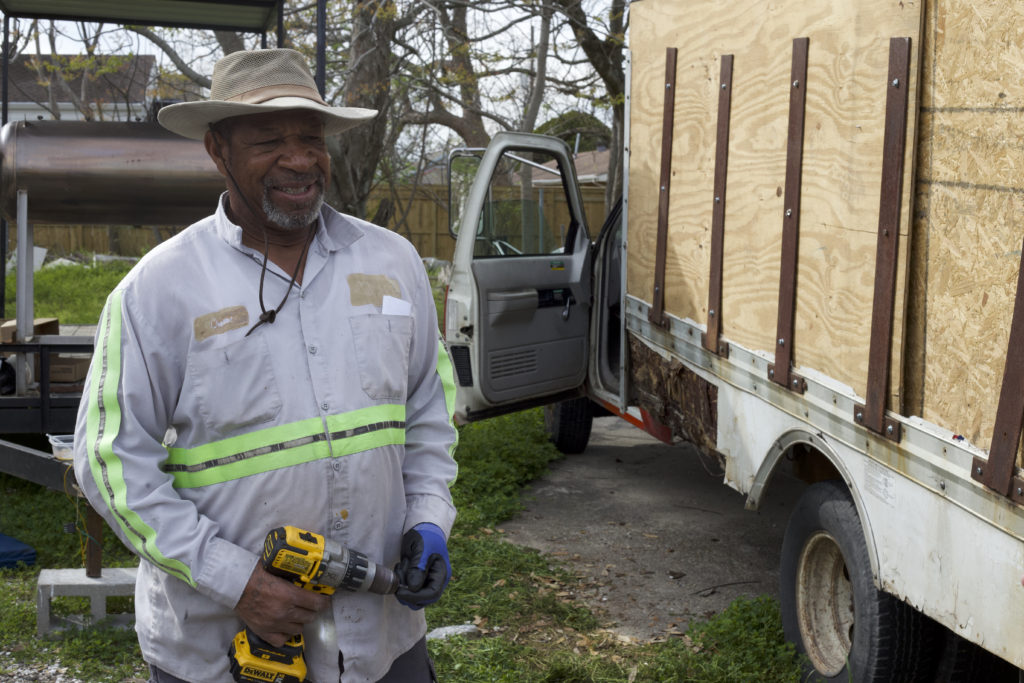
Gibson said it took three years for the area to become livable again. Fifteen years after Katrina, we found him helping some of his neighbors fix a truck they use to haul people’s garbage around. He’s now retired but picks up trash and trims trees around the neighborhood to help where he can.
Bryant Ballard
Bryant was sitting on a wooden staircase leading up the side of a small church smoking a cigarette when we walked up to him. He happened to be sitting right next to our rental car and came outside just a few minutes after we parked and started walking around interviewing people. While we walked around talking to anyone we could find and taking pictures, Bryant seemed to be watching us.
The svelte man dragged on his Newport as we approached. He seemed apprehensive to talk to us at first, asking why we took so long to document the damage from Katrina that remains around him now. He asked us why we weren’t there 15 years ago to show the world what was happening.
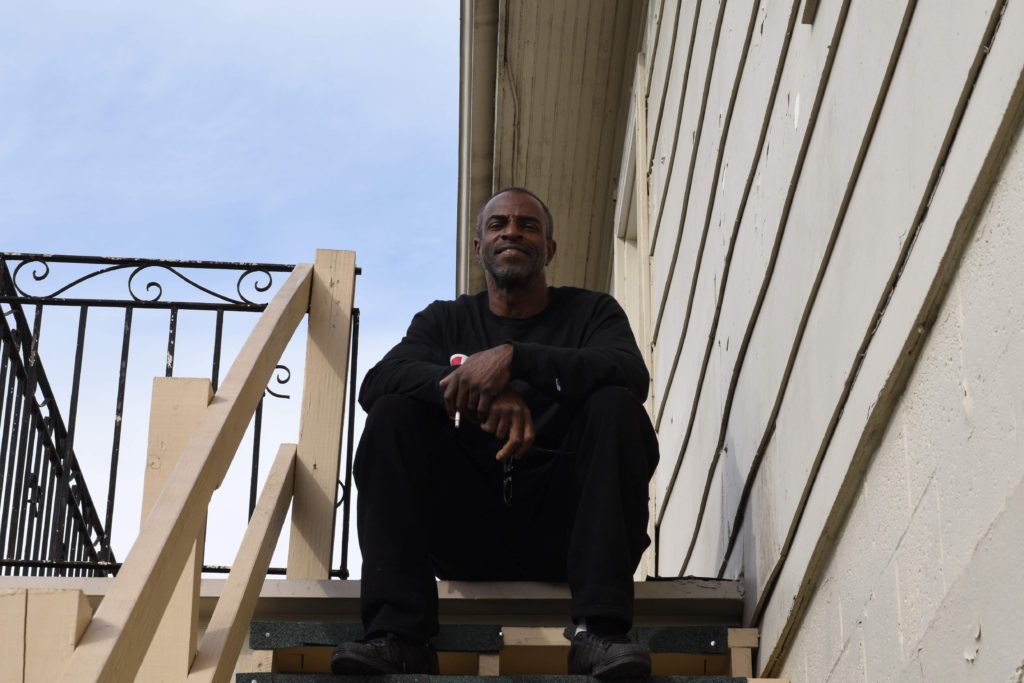
With a complete lack of effective rebuilding efforts from everyone except members of his own community, who can blame him? After all the pain and suffering he and everyone around him went through, after years of fighting insurance companies to pay for damages, after listening to his dying neighbors in their attics scream for help as the try to rip holes in their roofs to escape the rising water, who can blame him?
“It’s not about what you got, you have to realize that if you go to sleep one night and wake up the next day and your whole history is gone, you can’t put a price tag on that.”
Bryant Ballard
The government and private sector offered little help to bring this historic area of New Orleans and its residents back. While much of the Ninth Ward remains leveled, Bryant and others in the area won’t stop trying to rebuild their community brick-by-brick.
“I think this is the best city in the world,” said Bryant.
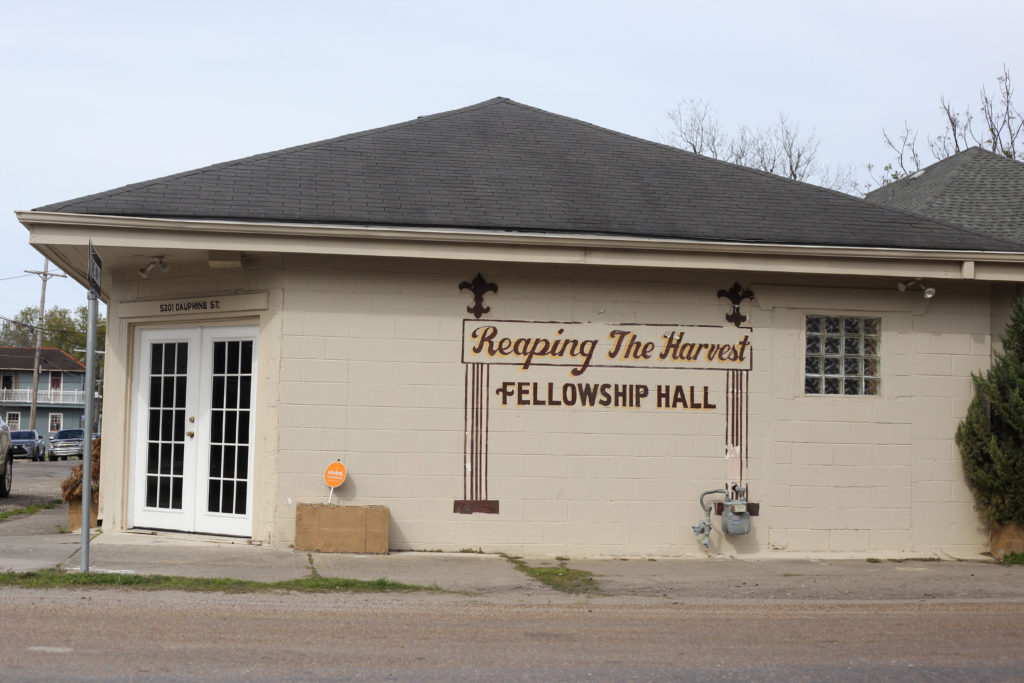
Bryant also thinks the government, or somebody, deliberately blew up the levee that broke and caused his area of New Orleans and to see significantly higher levels of water than places like downtown and the French Quarter.
“They say they broke, but we heard the explosions,” said Bryant.
He recalls hearing two loud booms and then noticing the water level rising much more quickly than it had been before. He admits the levees could have cracked and broken, causing the noise, but that noise would have been much different than what he heard.
But the community Bryant loves so much just isn’t the same as it used to be. Not even close. Bryant remembers growing up across Claibourne Avenue and going to school at Martin Luther King Elementary school. He remembers walking to school and being greeted by all the families in the neighborhood sending their children to join him. After school, they would play with each other in the neighborhood until the streetlights came on.
There are no streetlights on the side streets of the Lower Ninth Ward now. The houses where Bryant’s friends used to live are mostly gone, leaving vacant lots to remind him of the void created by Katrina in his community and heart.
Jemon West
Jemon West does all the maintenance on his car himself in the street. West graduated from Nicholls State University in Thibodaux, La. to become a lineman and make enough money to support himself, but he never expected to have to support his own mother back home in New Orleans.
“My momma had like a purple Plymouth Voyager,” he said.
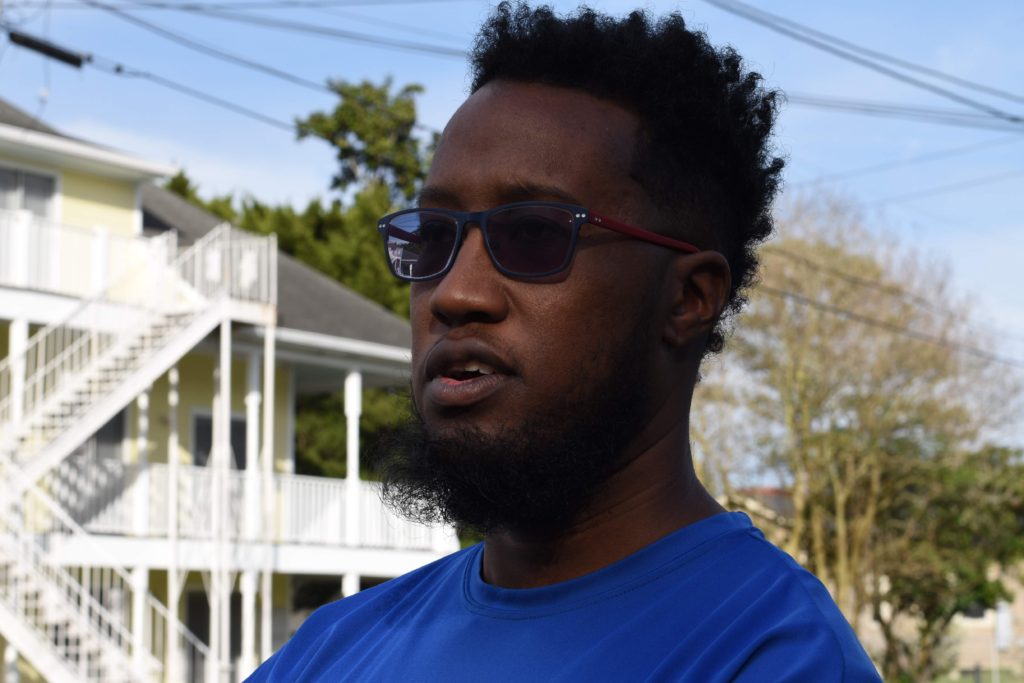
When Katrina hit, West’s mother fled, along with an estimated 15,000 to 20,000 other New Orlineans, to the Super Dome because she knew her home would never survive the imminent danger. She drove her purple Voyager to the Super Dome and parked in the parking lot.
“She said 10 minutes after she got to the Super Dome, her vehicle was under water.”
Technically West currently lives in Holy Cross, an area bordering the Ninth Ward to the south, but West spent his time as a child in New Orleans running and playing around the streets of the Ninth Ward. Fifteen years after Hurricane Katrina, he described it as a developing country.
“It looks like Sudan Africa. I’ve been there, and it reminds me of that. It’s just desolate. I wouldn’t go down there at night.”
Jemon West, referring to the Lower Ninth Ward.
When Katrina destroyed his mother’s house, the house he grew up in, she had to take out several loans to cover the costs her insurance didn’t cover. Their house wasn’t in the specified “flood zone” as specified by her insurance and FEMA, so they didn’t receive help. West said his mother was lucky to even be approved for the personal loans because others in the same position were not able to secure loans and were never able to return to their homes and rebuild.
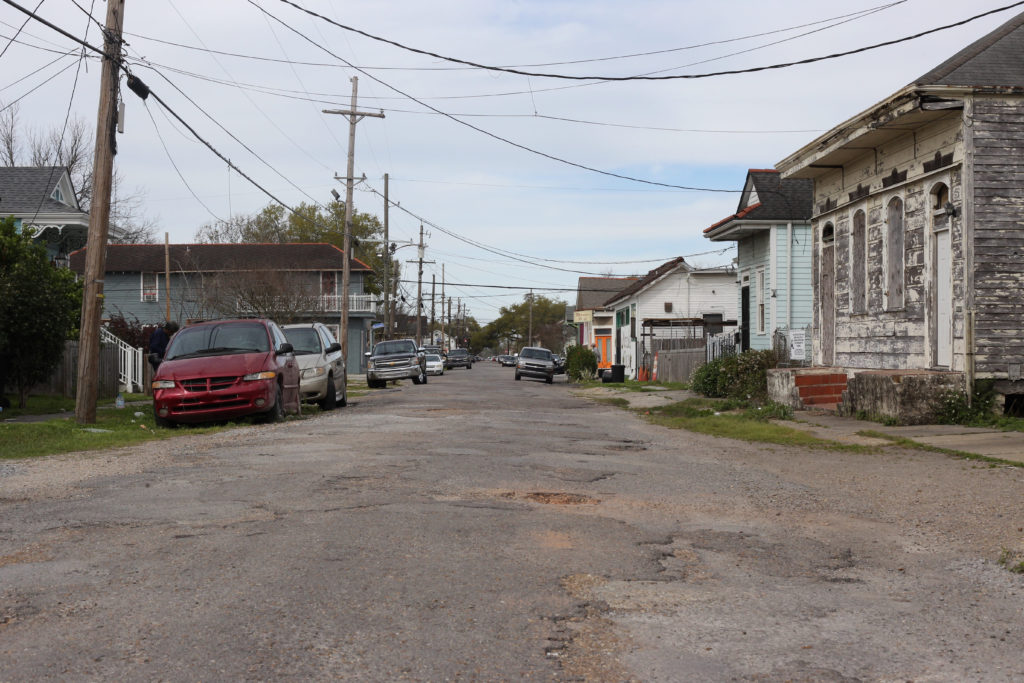
West said some were lucky enough to have collateral to borrow against, allowing them to take out loans to rebuild their homes, but many others weren’t as fortunate. Many who were able to get money from insurance companies only received enough money to move away to areas like Houston, Texas because they simply couldn’t afford the cost of rebuilding their homes. Especially if rebuilding their homes was going to take months and there was nowhere else in the city for them to live without paying rent in addition to home rebuilding costs.
He and his family were some of the many residents who said they heard explosions during Hurricane Katrina. They said the explosions were the government blowing up the levees in order to protect the French Quarter and divert the water away from the wealthier tourist and business areas of New Orleans.
“If I had to guess, the city was trying to protect the bread and butter of New Orleans, which was the French Quarter, Bourbon and Canal Street. That’s why they didn’t really get as much suffering as we had,” West said.
Rebecca Rodney
Rebecca Rodney was outside her home finishing up washing her Chevrolet Malibu on a sunny afternoon in the neighborhood she grew up in when we stopped by to talk to her. Like many of the other people we talked to that afternoon, she was raised in the Lower Nine and lived through the terror and destruction of Katrina.
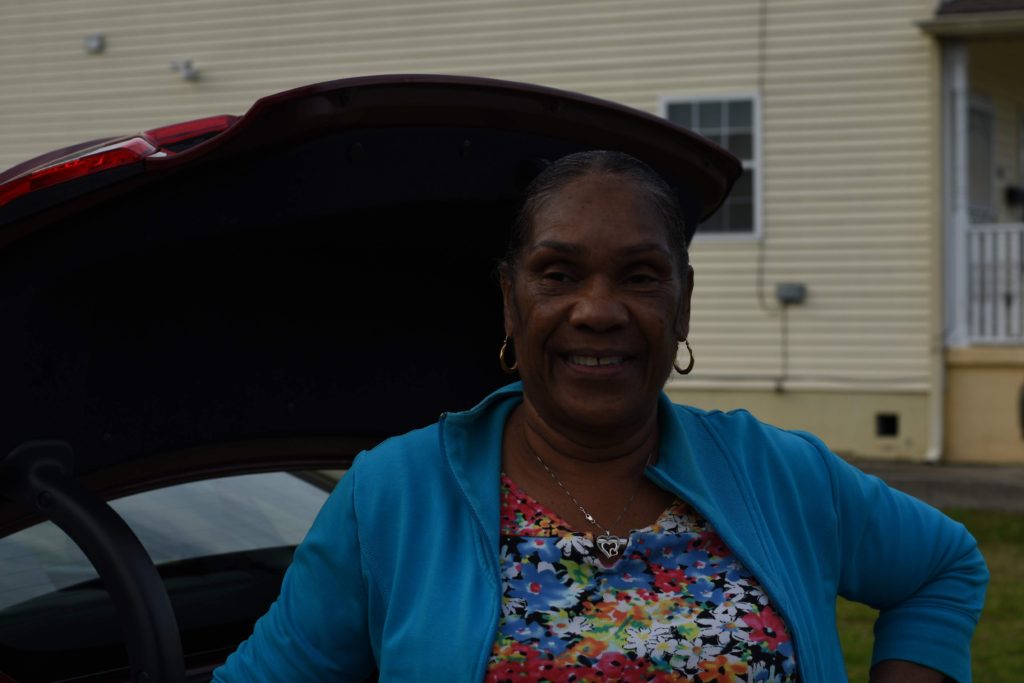
After Katrina, she fought her insurance company to get as much as she could for the damage to her home and used it, as well as some aid funds from the government, to rebuild much of her life from scratch.
Rodney is certainly grateful to have a house of her own. Her neighbor’s house was knocked off its foundation during the flood and ended up a few blocks away on Flood Street, ironically.
She remembers hearing one or two loud explosion-like noises and feeling a shock immediately afterwards around the time the levees broke.
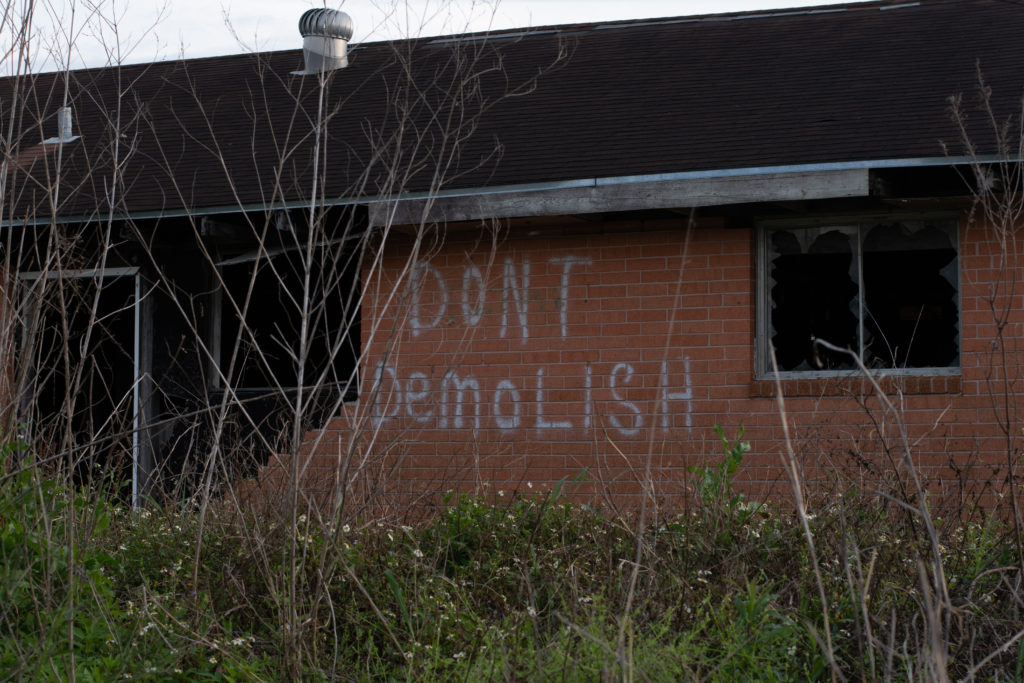
“Somebody blew it up,” said Rodney referring to the levees almost within eyesight of her current home.
However, no government aid or insurance check can buy replacement family photos of generations who have passed away. No amount of money can replace all the memorabilia lost, the family heirlooms, the family traditions or even recipes.
Rodney didn’t rebuild right away. After Katrina, she stayed in Baton Rouge, then Texas and California.
When she came back to the Lower Nine, things were different. Rodney said the locally owned businesses were all but gone from her once bustling neighborhood. Months after the hurricane, streets were still being cleared of debris and structurally unsafe houses were still being demolished.
Homes owned by people Rodney knew for decades were gone, and the people who used to live in them were nowhere to be found. She still has friends in the area, but Rodney thinks the lack of an overall community and the sudden changes have made her neighborhood less safe, especially at night.
While Rodney knows her neighborhood isn’t going through its best days, she said she sees progress happening, albeit more slowly than she wants.
Steven Forward
Steven Forward is a carpenter living in a 12-foot by 18-foot shack in the Lower Ninth Ward, surrounded by empty lots. He grew up in the area and said when he was kid, everyone in the neighborhood knew each other and helped each other out. However, new people moved in following Hurricane Katrina, and they don’t get along.
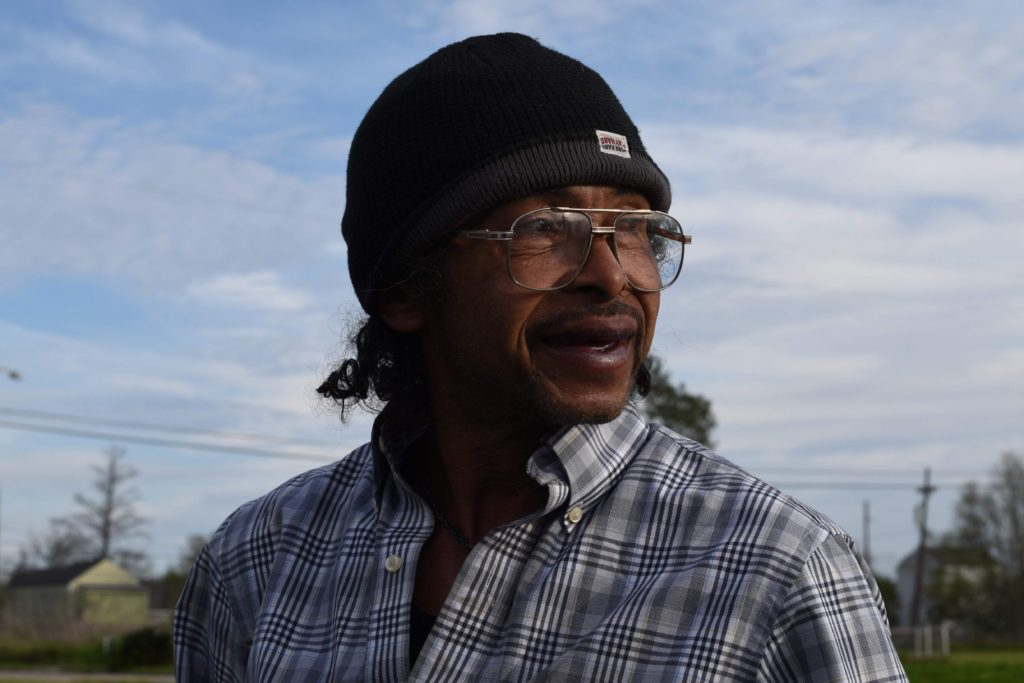
“They’re not right. The culture that they’re from is not like here,” he said. “They flip cars; they play the internet. I got a flip up cellphone.”
Forward was the only person who said he received enough money from the government following Katrina, despite losing everything and living in a place smaller than most garden sheds. He said he owns a brick, two-story house in Springs, Texas with palm trees and a pool in the backyard. Forward said his wife lives there while he tends to their place in the Lower Ninth Ward, though his ring finger didn’t have a wedding band wrapped around it.
After Katrina, he returned to his lot and found people had looted anything that was left. What they didn’t steal, the hurricane did. Metal scrappers came through and took anything valuable, he said, including their aluminum window frames.
“That was a good lesson,” Forward said. “I learned not to be attached to things. Not even heirlooms, things you can’t replace.”
Forward spends his free time tending his garden and listening to talk radio hosts Sean Hannity, Rush Limbaugh and conservative, southern talk show hosts Walton and Johnson. In his garden, he grows cabbage, green onions and dill.
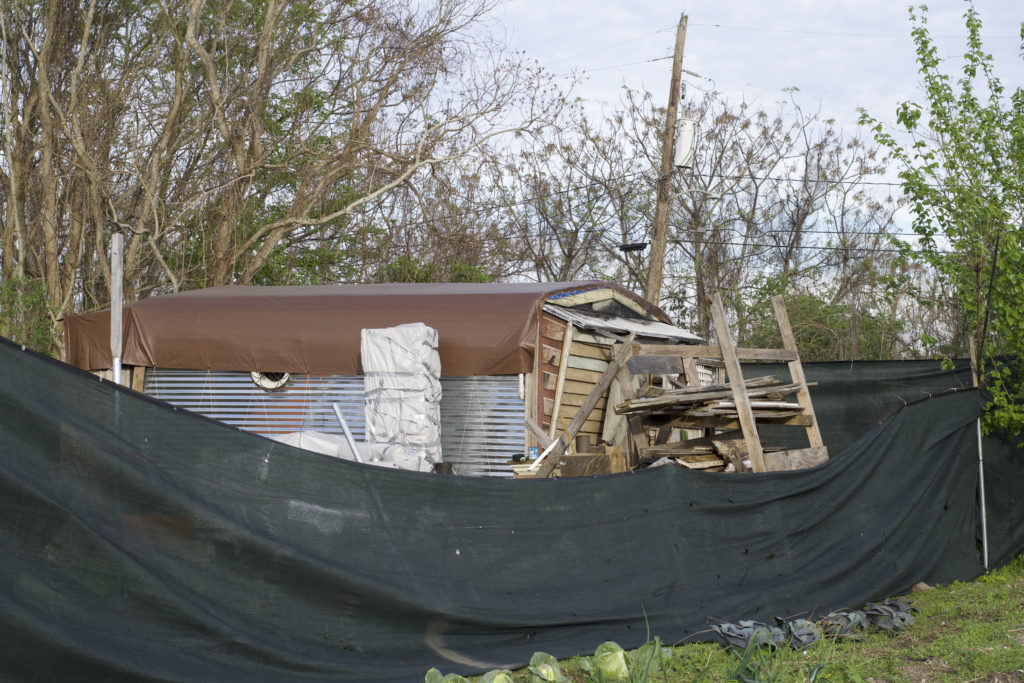
The property has been passed down through his family. His great grandmother originally bought the land and passed it down to his grandmother, who he bought it from. Forward blames the government for destroying his family’s home. He too said he heard the levees blown the day Katrina hit.
“I know how our government operates; I don’t trust our government,” he said. “I like Trump.”
Shantell Dantzler
Shantell Dantzler, 36, is the mother of two boys and a newborn baby girl. She’s lived in the Lower Ninth Ward since 2012 and only knows what it’s like post-Hurrican Katrina. She hoped to make New Orleans her home but living in the Lower Ninth Ward felt far from homey.
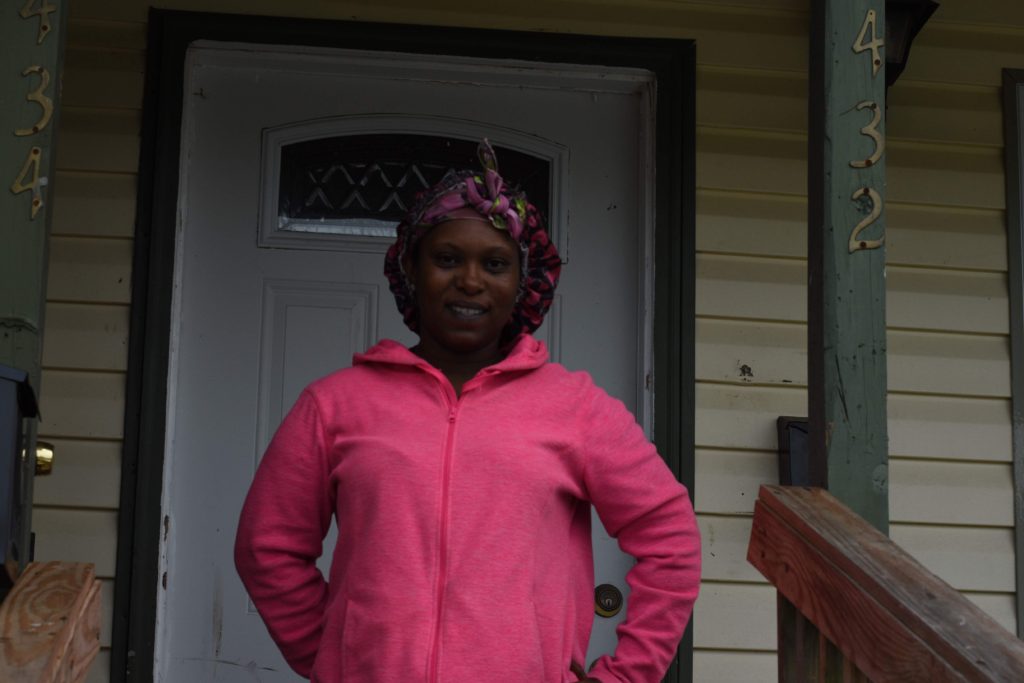
Dantzler rattled off a laundry list of issues with the area, including rodent infestations, blighted houses, a large population of homeless people, people dumping trash anywhere and everywhere and cars burning in the streets. She fears for her children’s safety and said she has complained for years about the lack of security, but her complaints have yet to be answered.
There’s also nowhere for her kids to play or have fun. The one park in the area is too far away from their home. With no security and no streetlights, she doesn’t let her children out of her sight.
“We need more affordable costs of living,” she said. “We need help everywhere.”
She warned us not to stay long after the sun starts to set, and that if we saw a group of teenagers on bikes, to just keep going.
Rodney Nurrery
Usually, when someone’s neighbor has an overgrown law, it is simply a nuisance. The vacant lots sprawling across the Lower Ninth Ward present a much more serious kind of problem for Rodney Nurrery, his daughter and newborn granddaughter though.
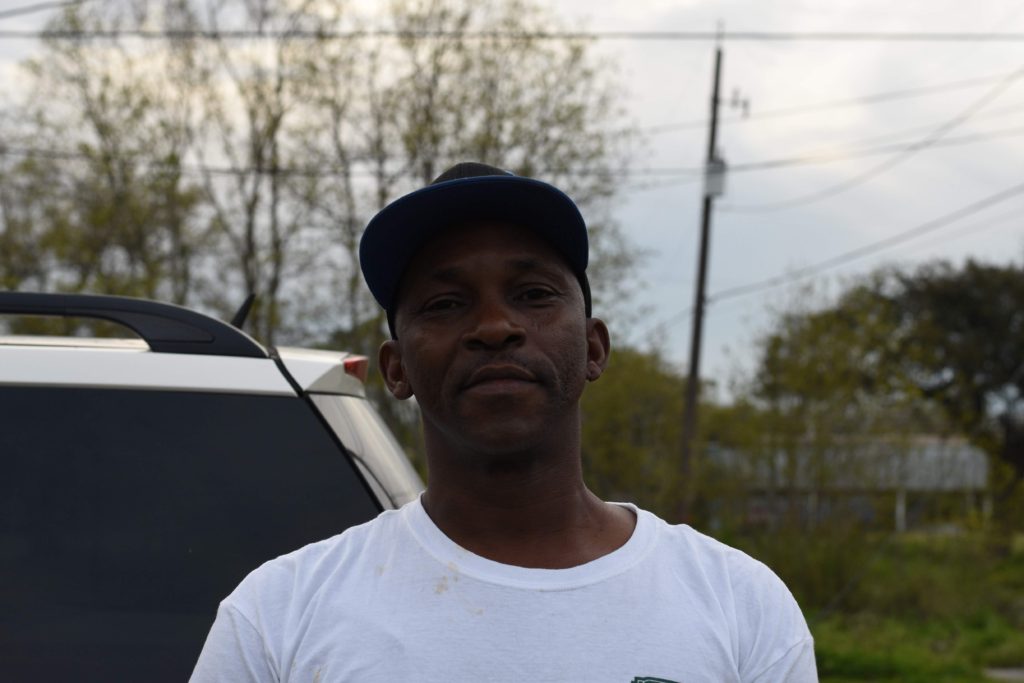
The grass growing several feet tall across the street from his daughter’s house are part of the reason he owns at least one gun.
“Right now, it’s necessary to own a gun here,” said Nurrery. “Not to rob or murder anyone, but to protect and defend yourself from the things that come out at night you can’t see.”
Trimmed lawns and streetlights are largely taken for granted across the United States, but not here in Nurrery’s neighborhood. He worries about what the darkness and grass across his street conceal.
“If my daughter and I are out here on her porch smoking cigarettes and I see something coming towards us in the grass and bushes, I wouldn’t hesitate to shoot whatever it is. Because whatever comes out at night around here isn’t the same as anywhere else.”
Rodney Nurrery
Nurrery grew up in the Lower Ninth Ward. He said when he was a kid, he didn’t have to worry about anything bad happening to him unless he went looking for trouble. He moved back to the Lower Nine two months before we talked to him because he wanted to help his daughter care for her new child.
He said the best days in the neighborhood are Sundays, because those are the days when everyone goes to church and gets to be together as a group. When Nurrery was growing up in the Lower Nine, it was nowhere near a crimefree area, but he said all the recent rapid changes to the community have caused more unrest than ever.
Now, he warned our group of the dangers approaching as sunset came closer.
Before we said goodbye to Rodney, he told us to watch out for groups of four or five teenagers on ATVs who ride around at night with guns looking to cause trouble. He specifically told us about a stoplight around the corner where people frequently get carjacked. “The only people who stop at that light at night are not from around here,” he said. “If that light is red when you come to it, just drive through. I actually push
